Synopsis
Interest and counterinterest, conflict and tension – this is what drives drama. In reality, however, it is precisely these things that we die from. Frustration is present at every level of our society. Instead of constructive solutions, we generate new and increasingly strange illnesses, transforming our personalities and hiding behind incomprehensible symptoms, away from the world and ourselves. The performance Sunflower focuses on this contemporary phenomenon, revealing its tragedy and the humor arising from its absurdity.
A young couple, a failing marriage, a house they are about to lose, and a spreading illness. Failures swept under the rug, unspoken accusations, and repressed emotions poison the atmosphere at home. The couple, alienated from each other, drifts through daily life in a fog of problems, all observed keenly by their ten-year-old child.
The play Sunflower primarily examines the relationship between ten-year-old Janka and her mother. The Mother suffers from untreated psychological illnesses, whose symptoms become increasingly extreme as the story unfolds. Across this “minefield” navigates Janka, a child on the threshold of preadolescence. The stories of seven other characters also unfold in the play: the worlds of children and adults appear simultaneously, along with the chasm that separates them.
Cast & Creative Team
Cast:
Kata Pető, Andrea Petrik/Orsolya Török-Illyés, Bálint Formán, Dóra Sztarenki, Pál Kárpáti, Hella Tolnai, Mária Kőszegi, Károly Hajduk
Costume Design: Márton István Szabó
Lighting: Máté Bredán
Music Collaborator: Bálint Formán
Assistant Director: Dóra Tési
Playwright & Director: Andrea Pass
STAFÉTA award-winning production, recipient of a special prize among the 2016 Staféta performances.
The play was selected as one of the three Hungarian dramas for the 2018 EURODRAM (European Network for Drama in Translation).
An English reading performance of the play was staged as part of the NEW YORK Spring Festival at the Bohemian National Hall (2019).
The play was also directed by the Romanian star director Radu Afrim in 2023 at the Tamási Áron Theatre in Sfântu Gheorghe. The trailer can be viewed at the following link: https://www.youtube.com/watch?v=DqKX4GYrhgs&t=6s
Production Photos
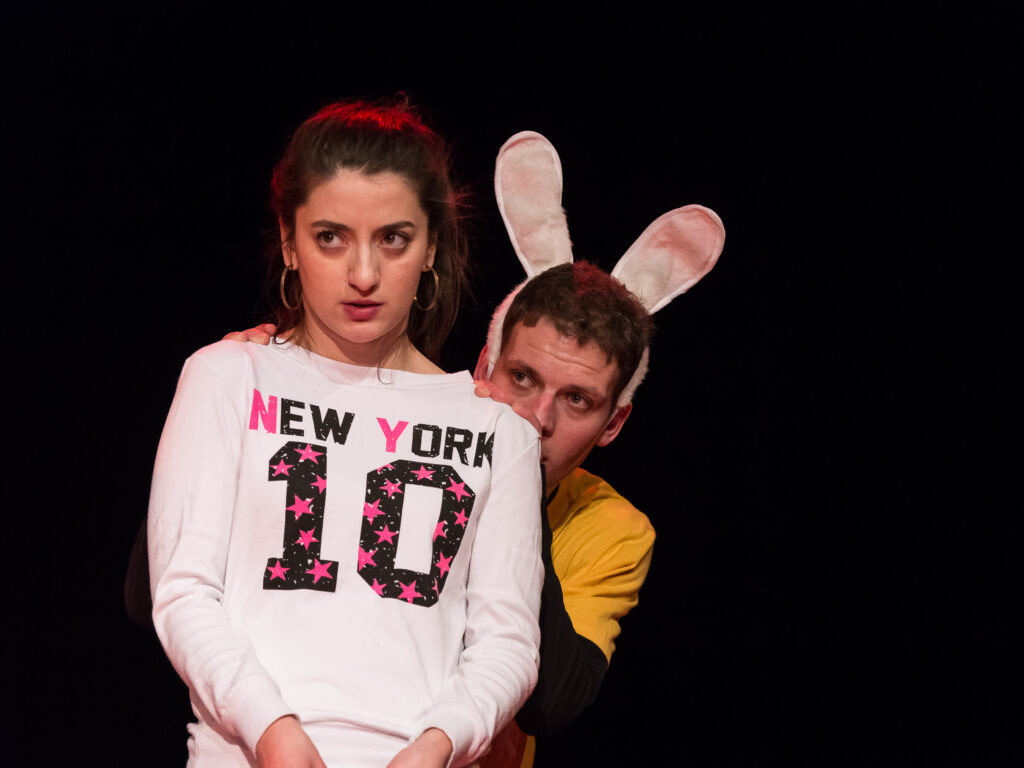
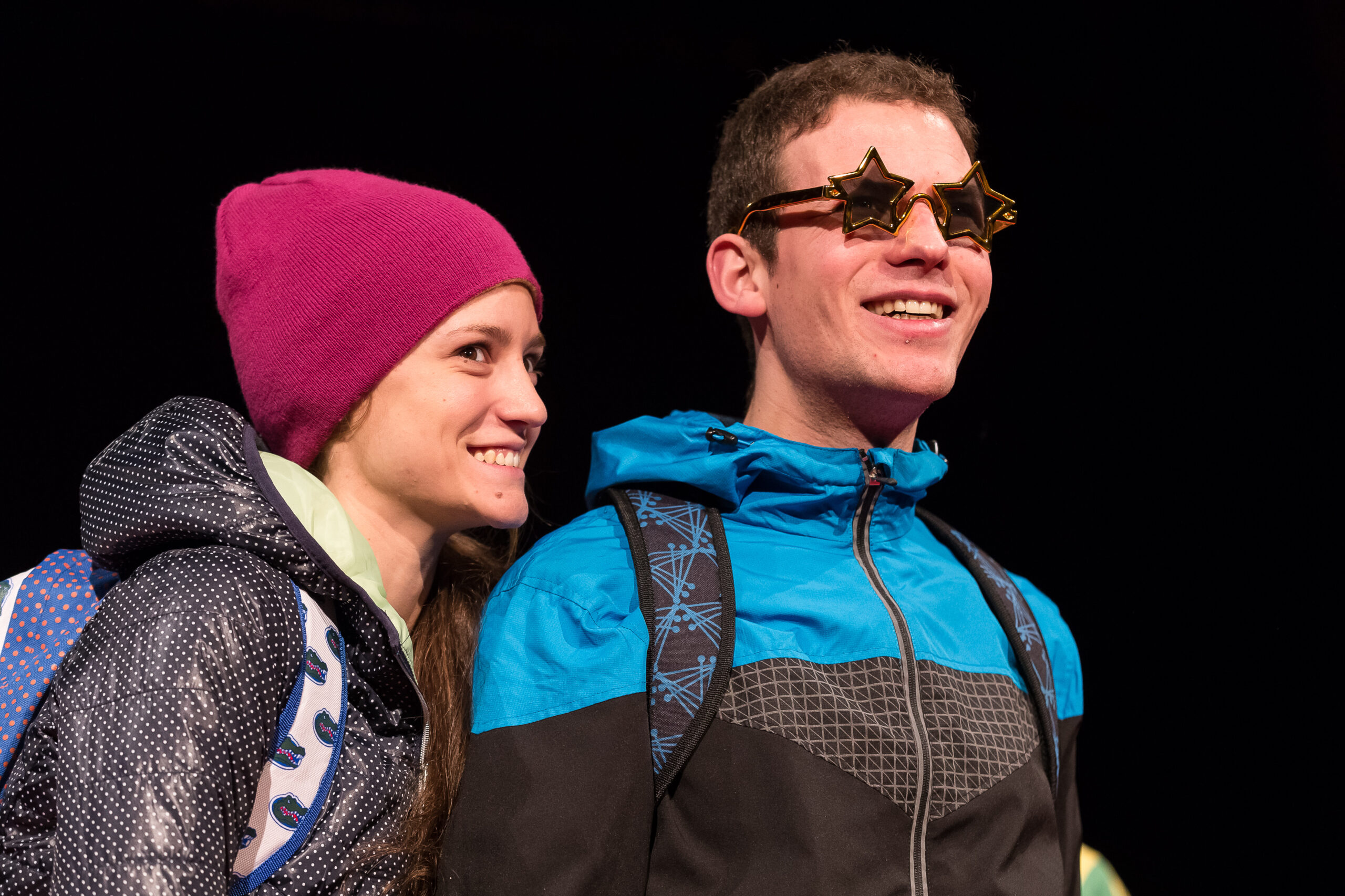
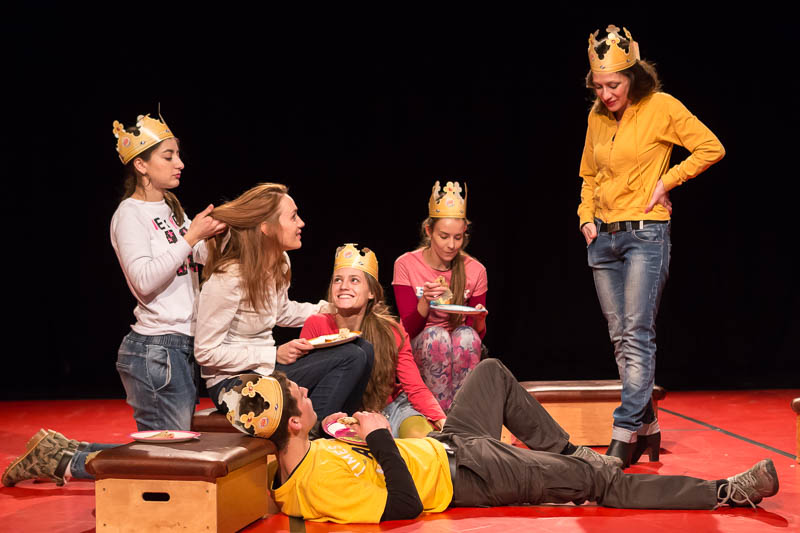
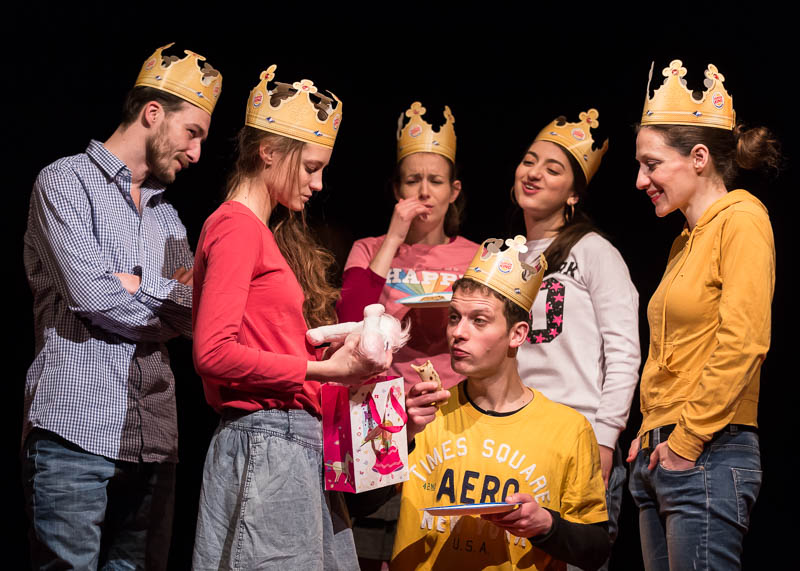
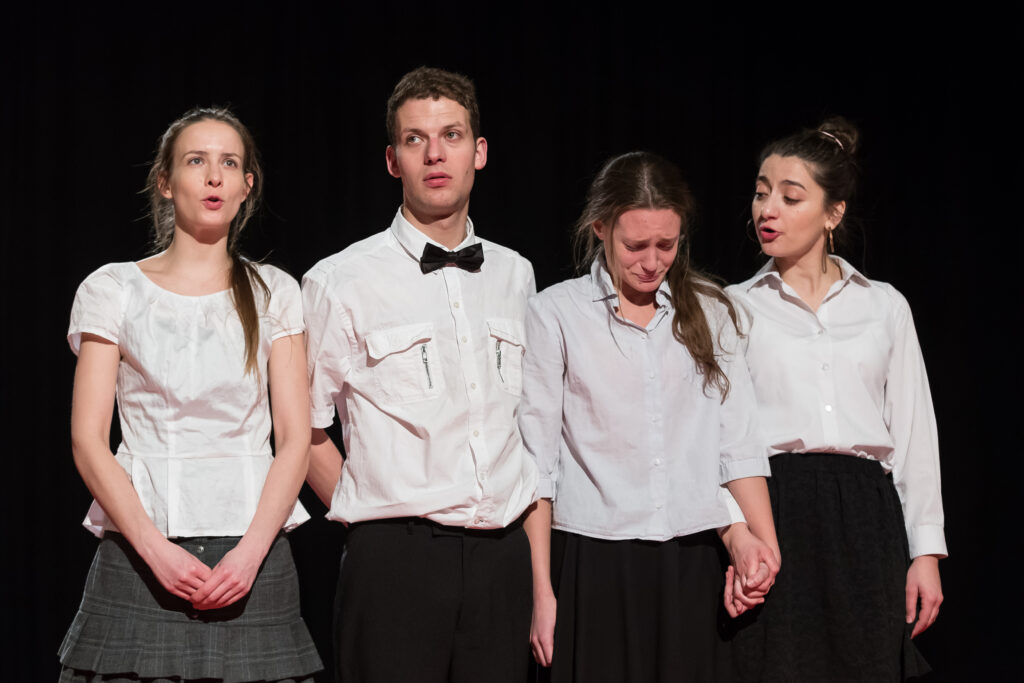
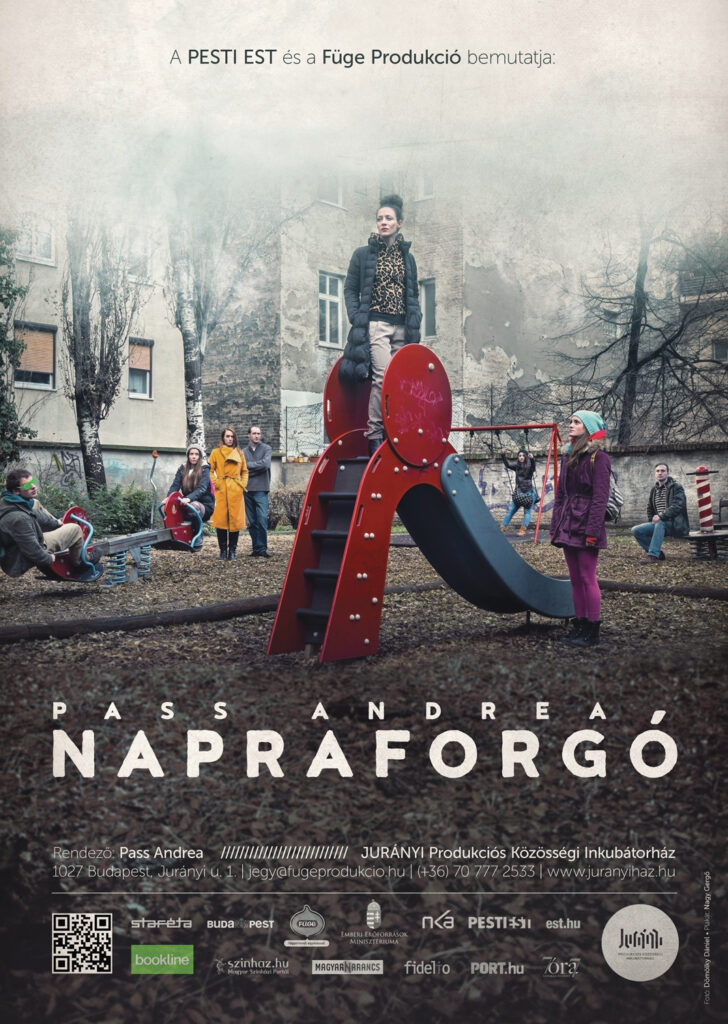
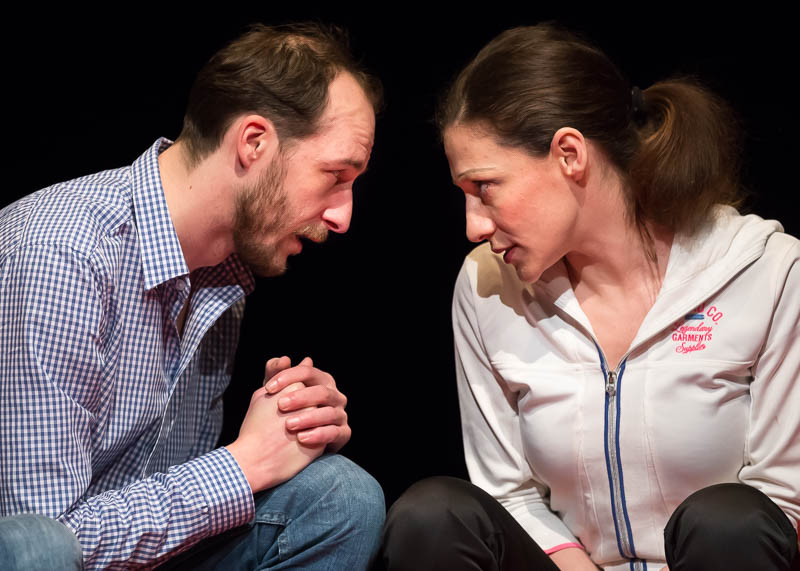
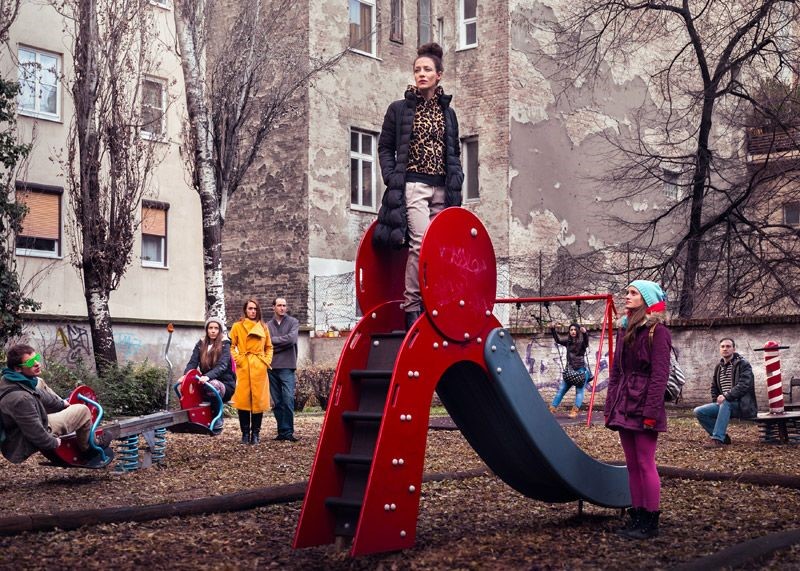
Photos by: Dániel Dömölky
Trailer
Excerpts from Reviews
Synopsis
Protective fathers and worried mothers carefully choose a kindergarten for their children. The teacher is reliable and skilled, the other parents are decent people too, so the children can be safely left in this secure environment. Of course, problems can arise anywhere—even in this dream kindergarten, where the oldest children begin to play strange games. The adults, however, are watchful and won’t let anything go wrong, so they embark on an investigation to find out who is behind the guilty play. Four parents, four children, and a teacher. It’s all about a children’s game—but they take it seriously.
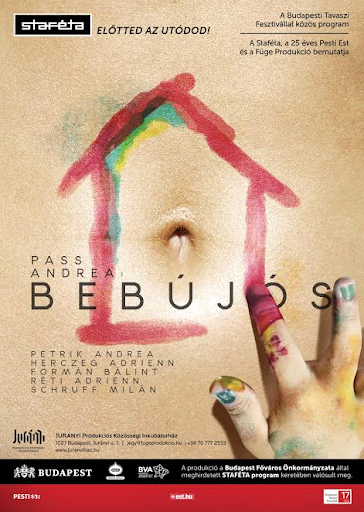
Cast & Creative Team
Cast:
Andrea Petrik, Adrienn Herczeg, Bálint Formán, Adrienn Réti, Milán Schruff
Set Design: Juli Balázs
Costume Design: Kata Pető
Dramaturg: Judit Garai
Music: Gábor Keresztes
Lighting: Máté Bredán, Antal Lohár
Assistant: Dóra Hannig
Writer, Director: Andrea Pass
Special thanks to Katia Bagdi.
The production was realized as part of the Staféta program announced by the Municipality of Budapest.
The creation of the play was supported by the István Örkény Playwright Grant.
Supporters:
Municipality of Budapest, Budapest City Image Nonprofit Ltd., Staféta, Füge Production, Pesti Est, est.hu, Jurányi Production Community Incubator, Budapest Spring Festival
Production Photos
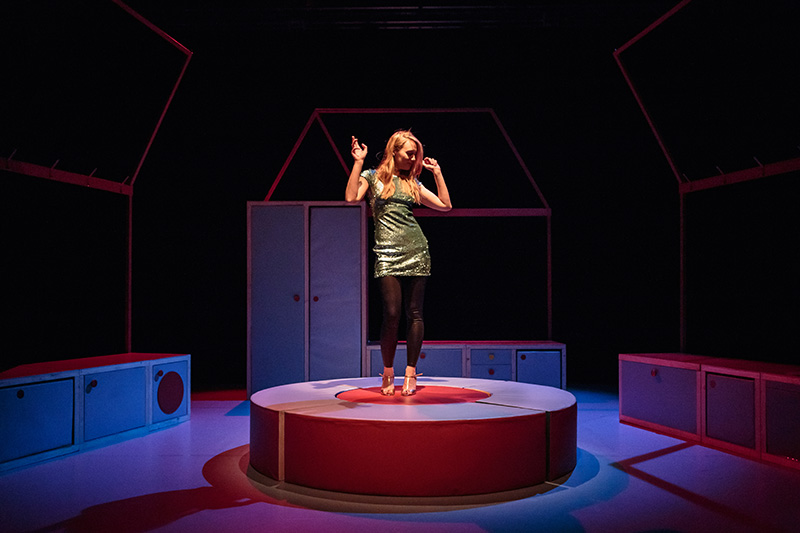
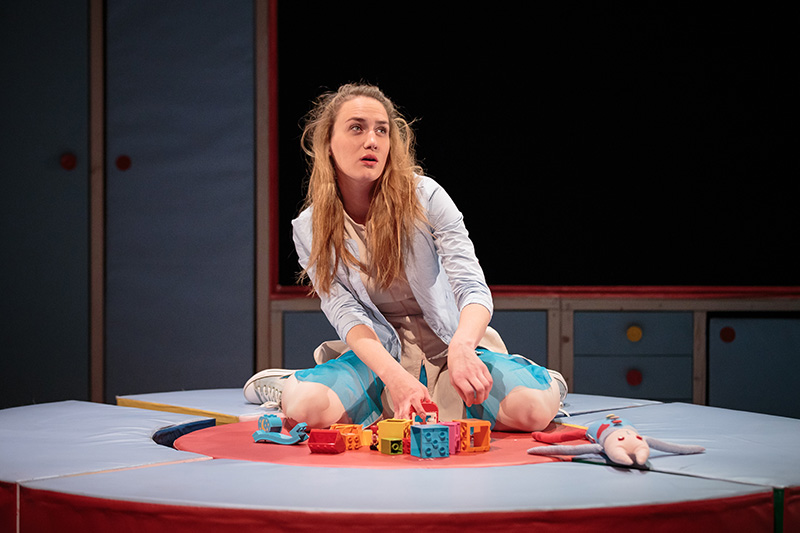
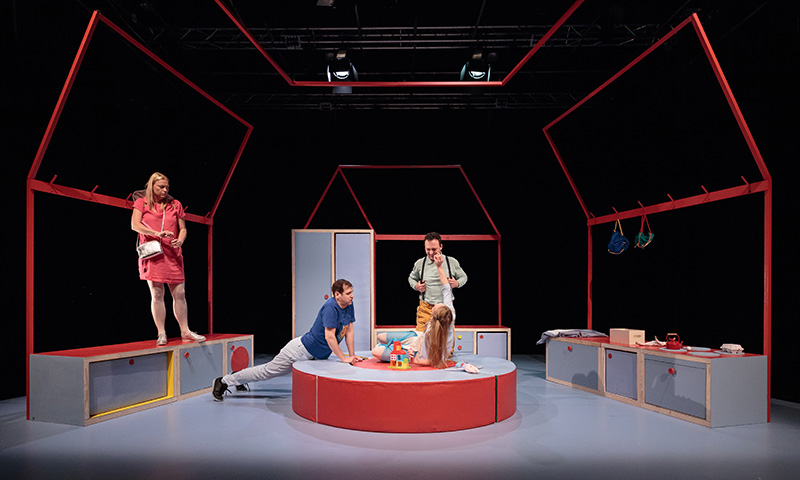
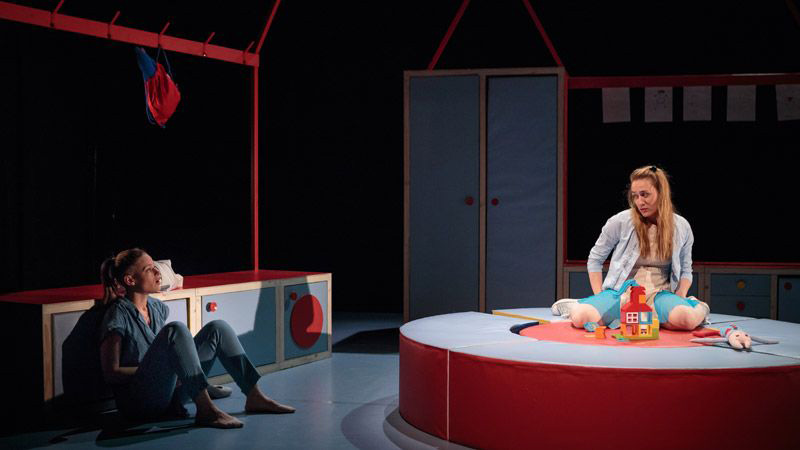
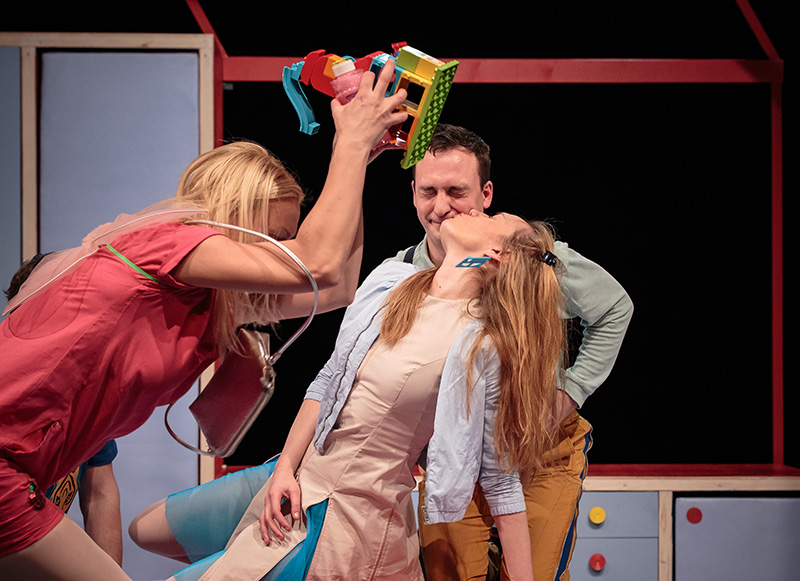
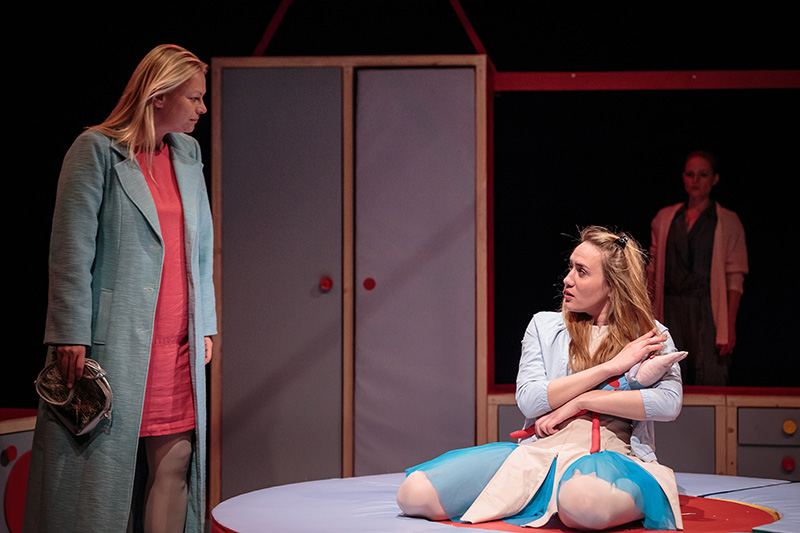
Photos by: Dániel Dömölky
Trailer
Excerpts from Reviews
Synopsis
True Life Lies
The Wandering Dog is an innocent stuffed animal. In its glass eyes flash the great life-lies of adults. It is a toy that connects parents whose children attend the same kindergarten. It travels from family to family, sniffing out every secret. Edina, the femme fatale, hosts a dinner for the kindergarten parents with her child’s father, Vilmos. The stuffed dog arrives as an unexpected guest, accompanied by a slightly demented grandmother, at the alcohol-fueled gathering. The guests recoil in horror, for the Wandering Dog knows everything about them.
The world of the play evokes Hitchcock’s films: an absurd psycho-thriller full of humor.
The production was a great success at the Debrecen Contemporary Drama Festival, where the playwright-director presented the play as a guest of honor.
Judith Halász was nominated for the 2019 Critics’ Award for Best Supporting Actress.
The play has also been published in print in the Kortánc: Contemporary Hungarian Plays collection, and in Polish (translated by Daniel Warmuz) in Dialog magazine, Warsaw.
The Italian translation (translated by Dóra Várnai) was selected in 2021 by EURODRAM – European Network for Drama in Translation – as one of the plays recommended for international publication and staging.
Cast & Creative Team
Mama – Judit Halász
Klaudia (Mama’s daughter) – Tünde Majsai-Nyilas
Misi – Gábor Jászberényi m.v.
Edina – Andrea Petrik
Vilmos (Edina’s partner) – István Hirtling
Melinda (Vilmos’s wife) – Márta Gilicze m.v.
Jutka – Renáta Tar
Kornél (Jutka’s husband) – Zoltán Karácsonyi
Set design: Ágnes Bobor
Costume design: Kata Pető
Dramaturg: Judit Garai
Music: Tamás Keresztes
Plush dog designer: Sosa Juristovszky
Lighting design: Móni Hlinka
Stage manager: Miklós Varga
Prompter: Zsuzsa Kertes
Assistant director: Zoé Efstratiadu / Gergő Patkós
Director: Andrea Pass
Production Photos
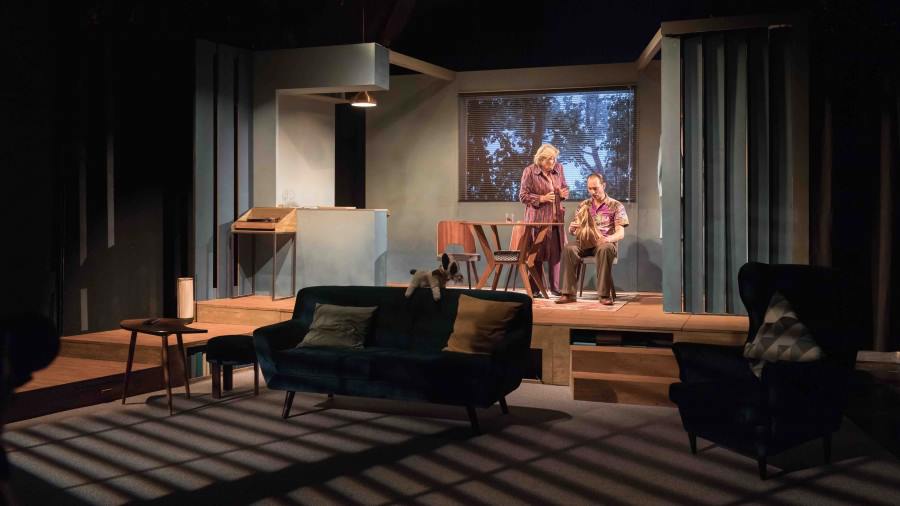
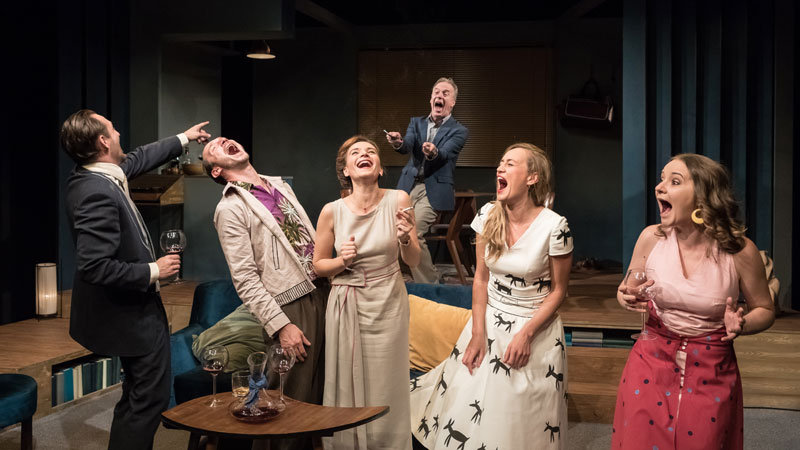
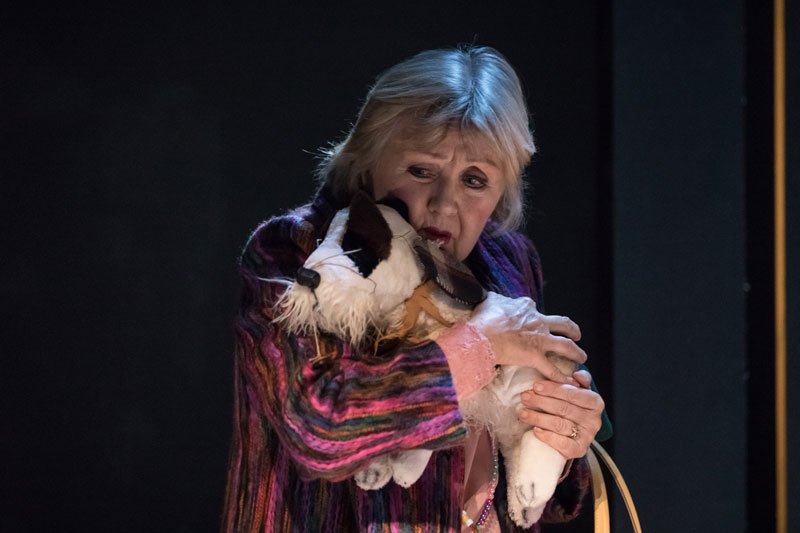
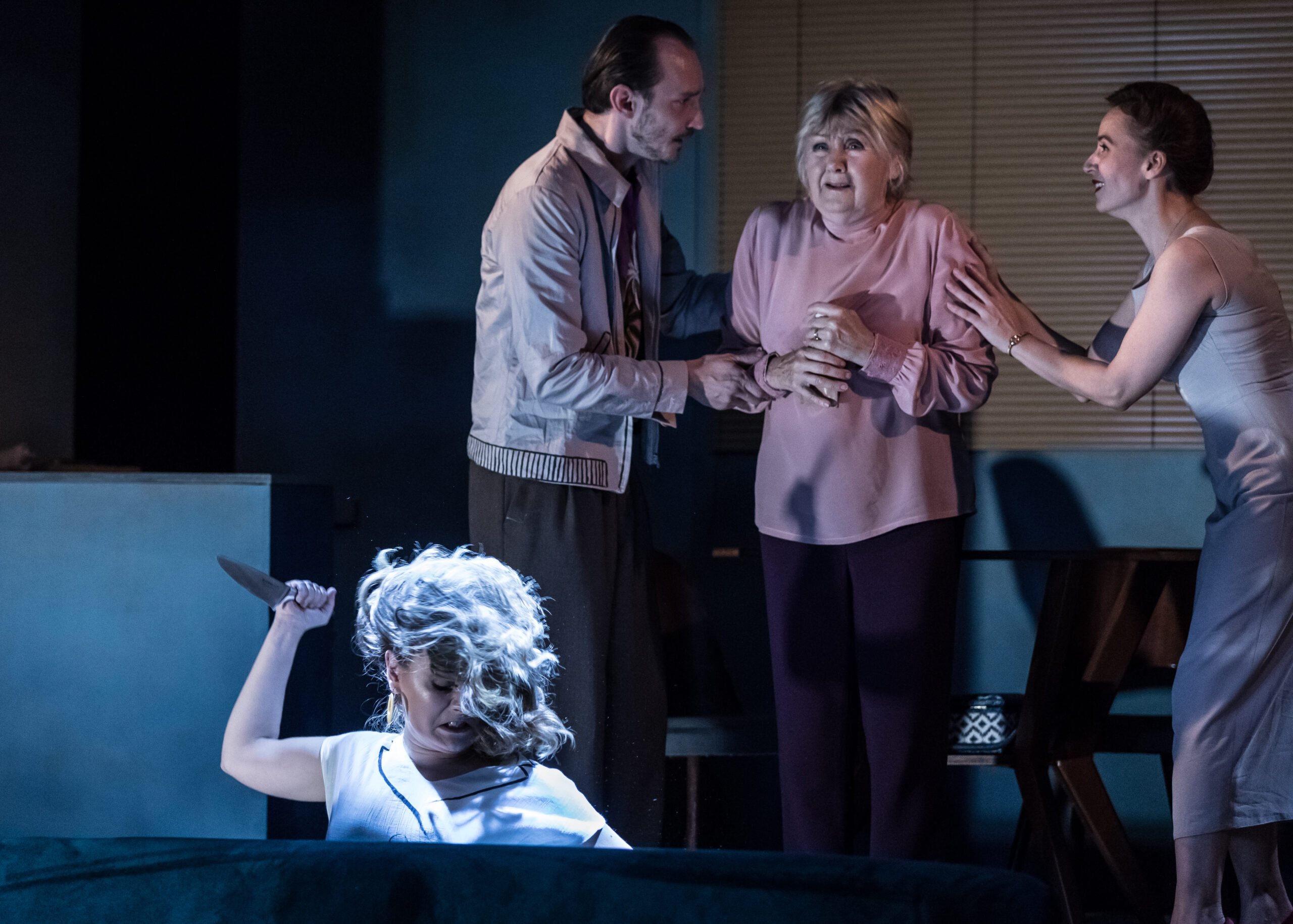
Photos by: Dániel Dömölky
Excerpts from Reviews
Synopsis
Drama
The perfect vision gradually develops over the first six to eight months after birth. At first, the brain is not yet able to process the incoming visual information. As the months pass, and the brain develops, the range of sharp vision increases too; we might say we are gradually absorbing the world that surrounds us. We learn to walk and slowly start to recognize every stimulus. Ideally, we grow to love life and cannot get enough of its beauty. However, there is a disease that, along the path toward the end of life, gradually takes away the senses necessary for perception. Our protagonist, Endre, step by step moves away from the wonder that is so difficult to let go of.
“How can one truthfully convey a death notice on stage? It is not easy to talk about illness or the death of loved ones. The subject is epic, yet it carries elements of absurdity and surrealism. I could not rest until I confronted the impossibility of this challenge. Years ago, while running, a writer’s game flashed into my mind. A dramaturgical journey emerging from merciless disease. Then the game quickly transformed into confinement; I could not leave the room until I found the right words. I had never searched for a sentence, a question, an answer for so long. How can one truthfully convey a death notice on stage? Howisthere? Whatisit? Whatisitreally?” (Pass Andrea)
Cast & Creative Team
Writer, Director: Andrea Pass
Cast: Szabolcs Hajdu, Pál Kárpáti, Márton Pallag, Kata Pető, Andrea Petrik, Adrienn Réti
Musicians: Gábor Keresztes, András Csizmás, Ágoston Szabó Sipos
Music: Freakin’ Disco
Set Designer: Botond Devich
Costume Designer: Kata Pető
Costume Designer Assistant: Dorottya Vincze
Lighting Designer: Móni Hlinka
Sound Engineer: Dávid Kovacsovics
Assistant Director: Bori Rezek, Anna Gerstmárt
The play was created with the support of the István Örkény Playwriting Competition.
The production was realized within the framework of the Staféta program announced by the Municipality of Budapest.
Production Photos
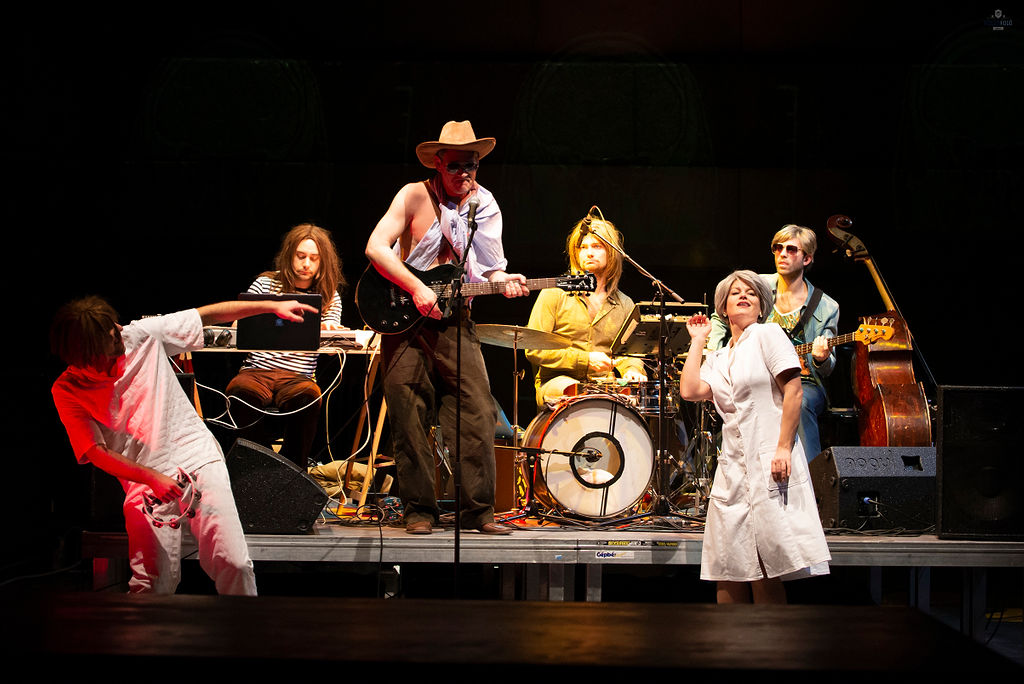
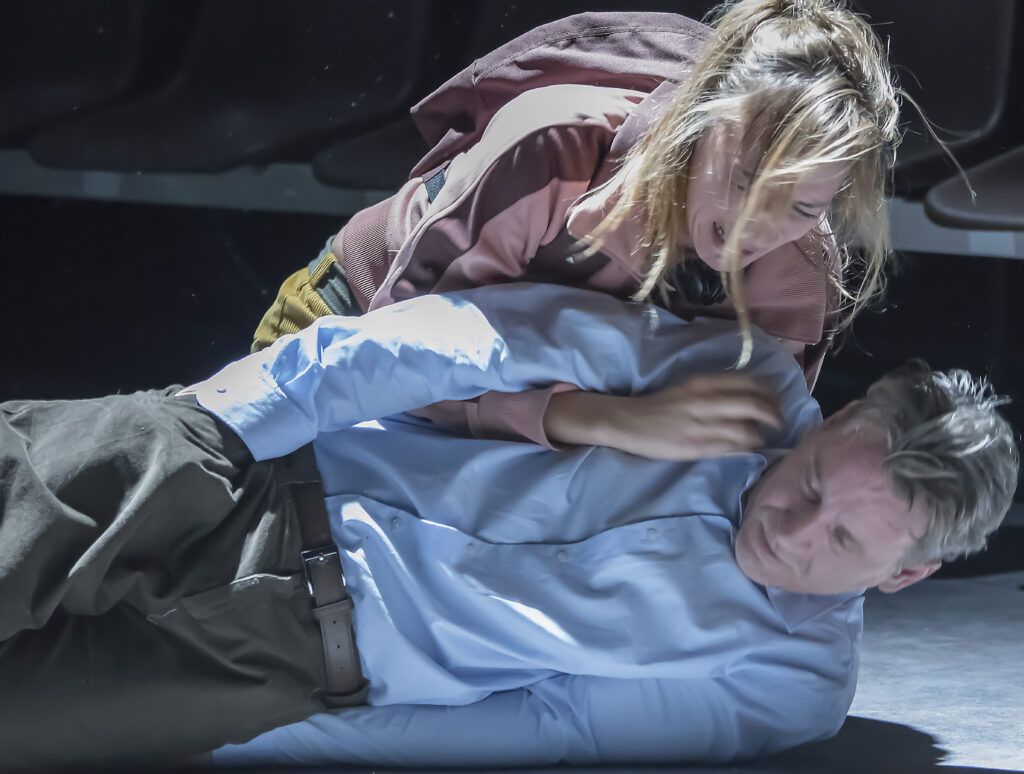
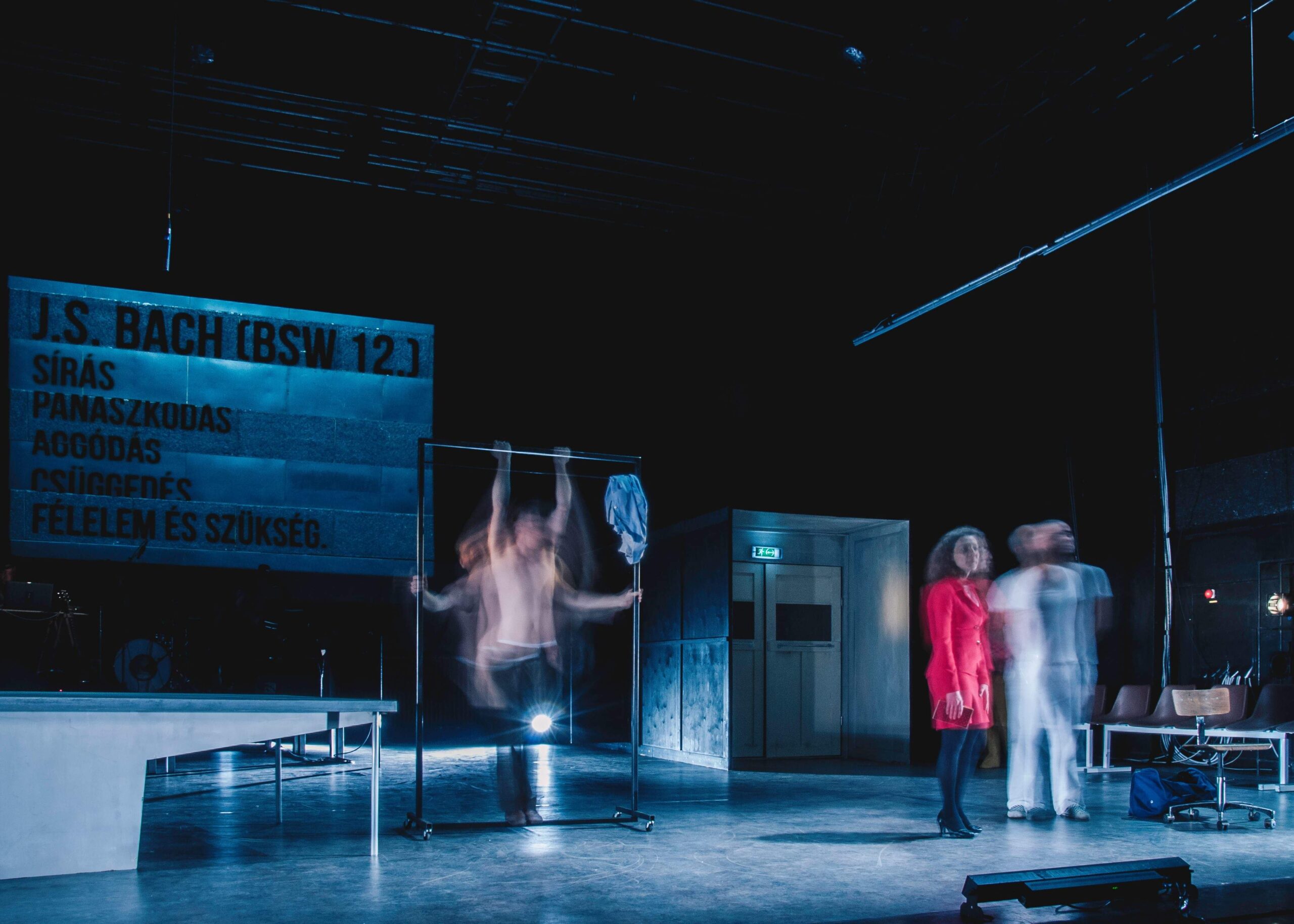
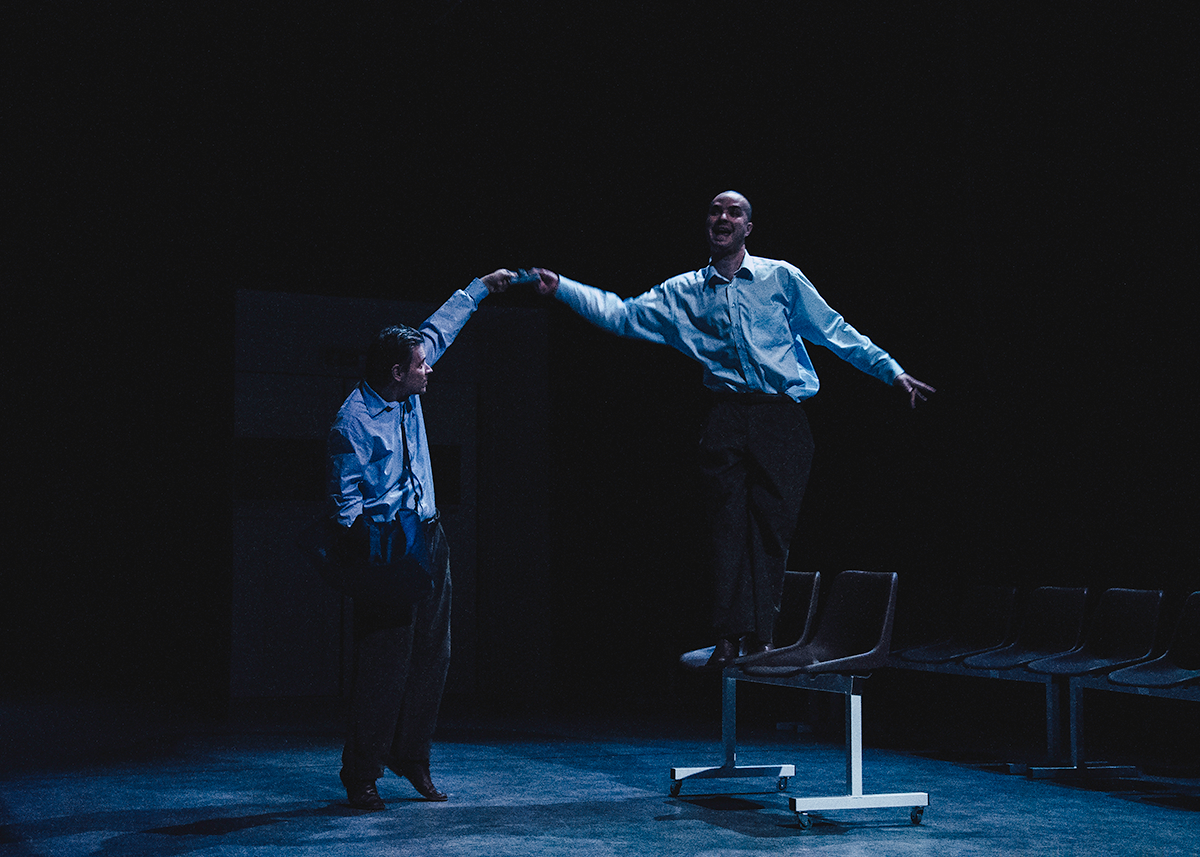
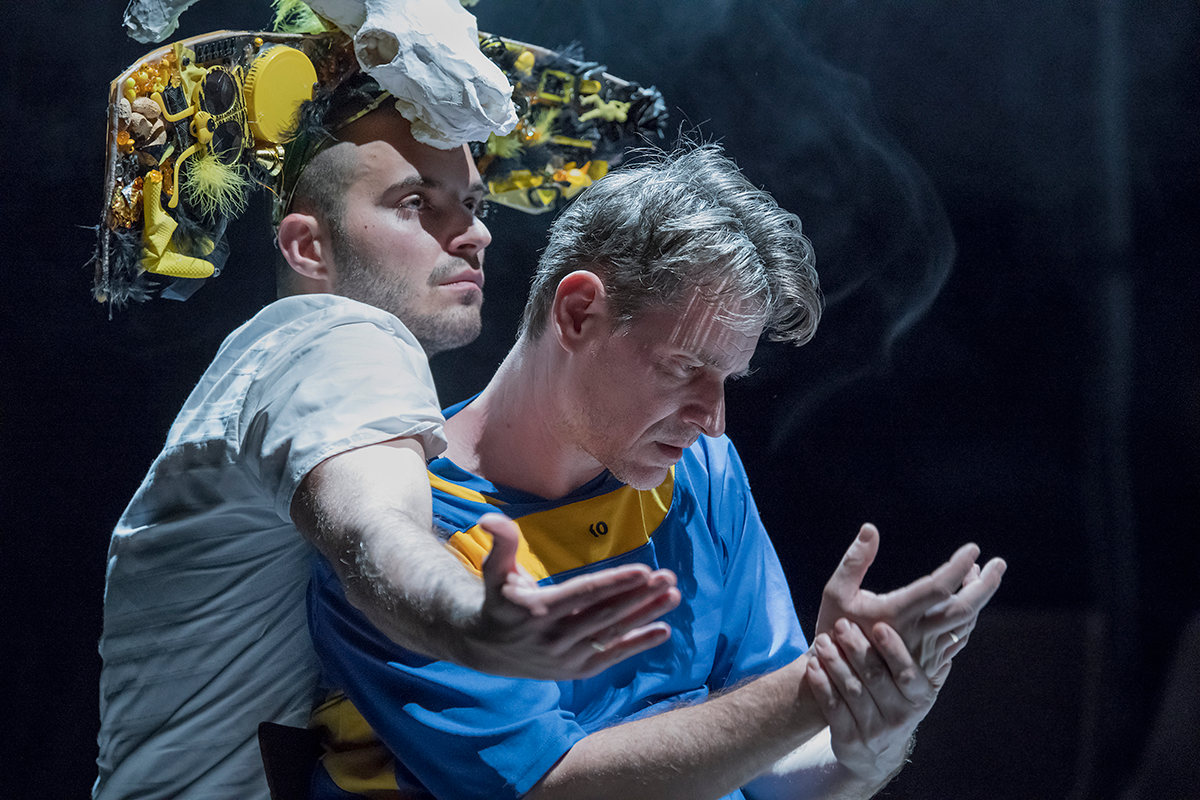
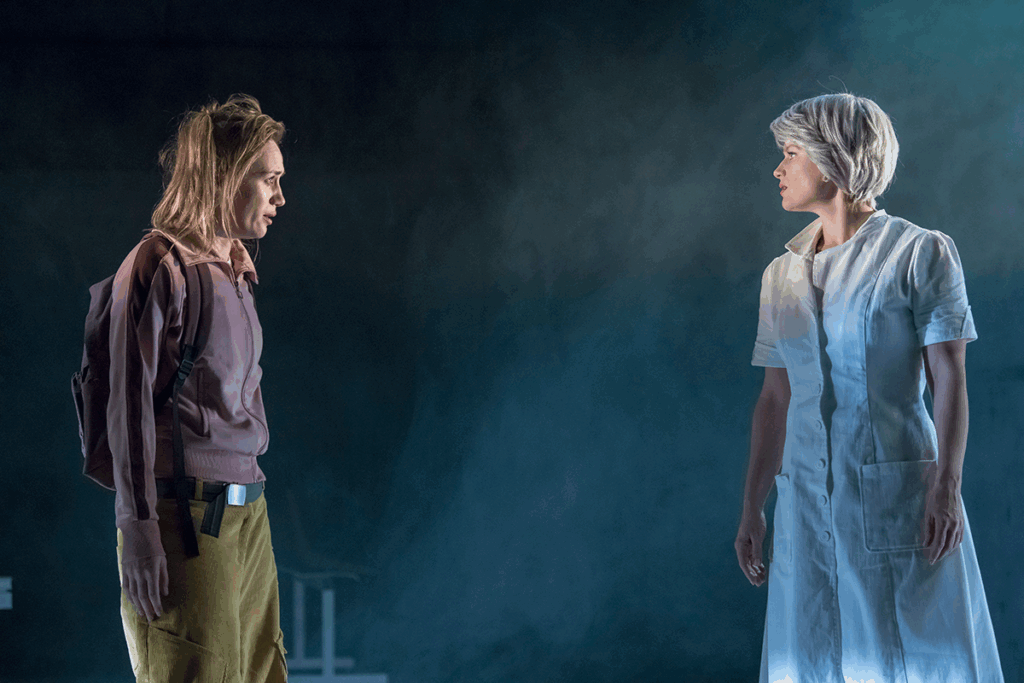
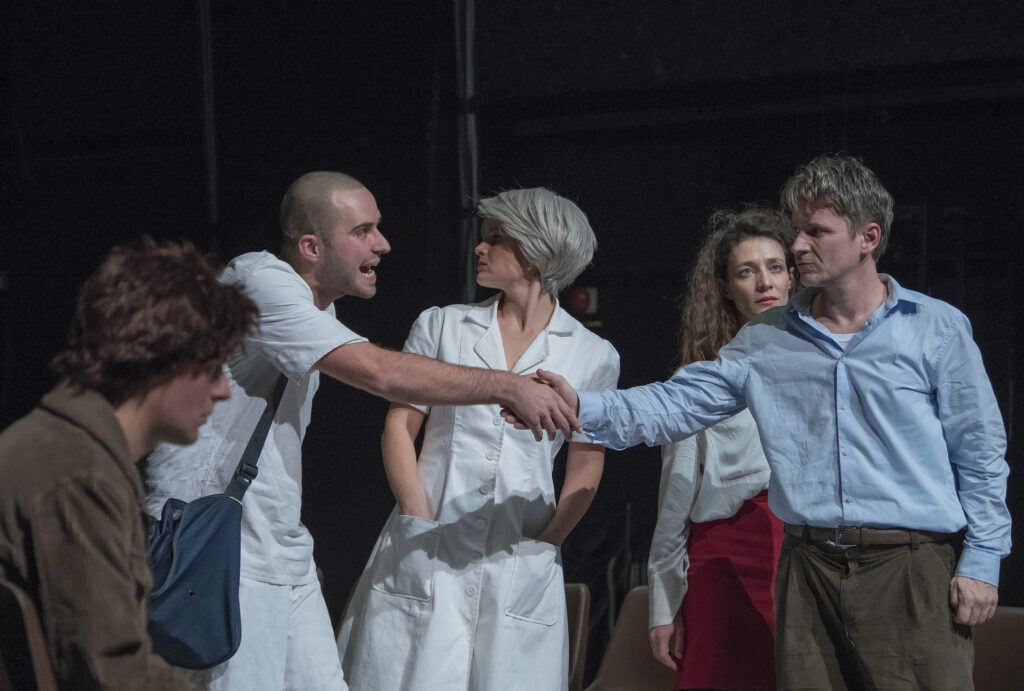
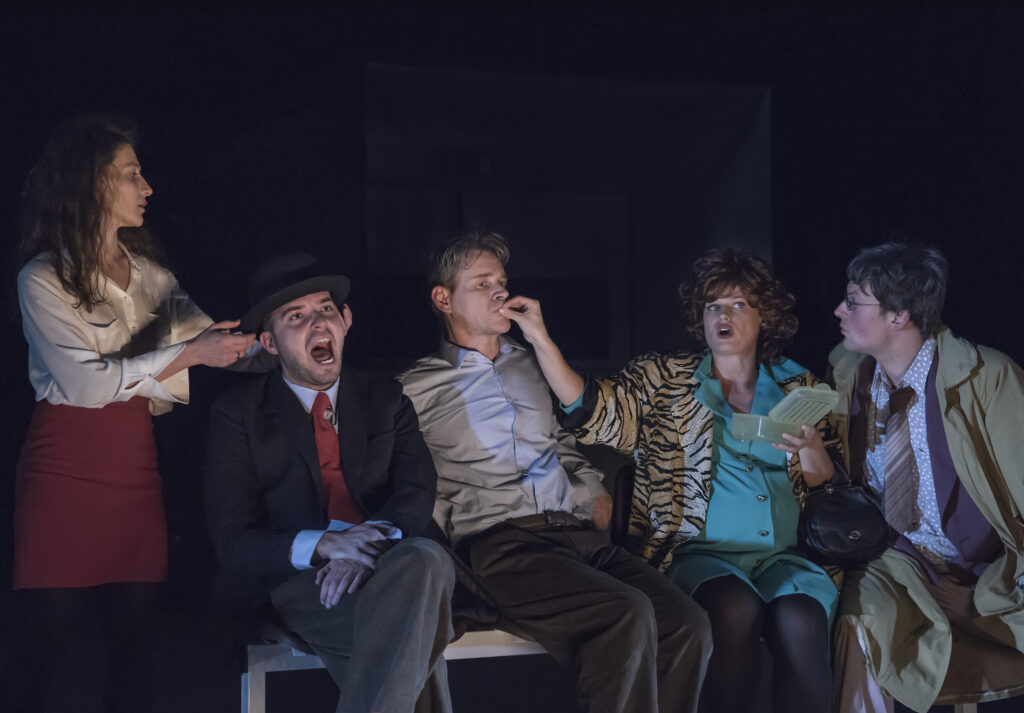
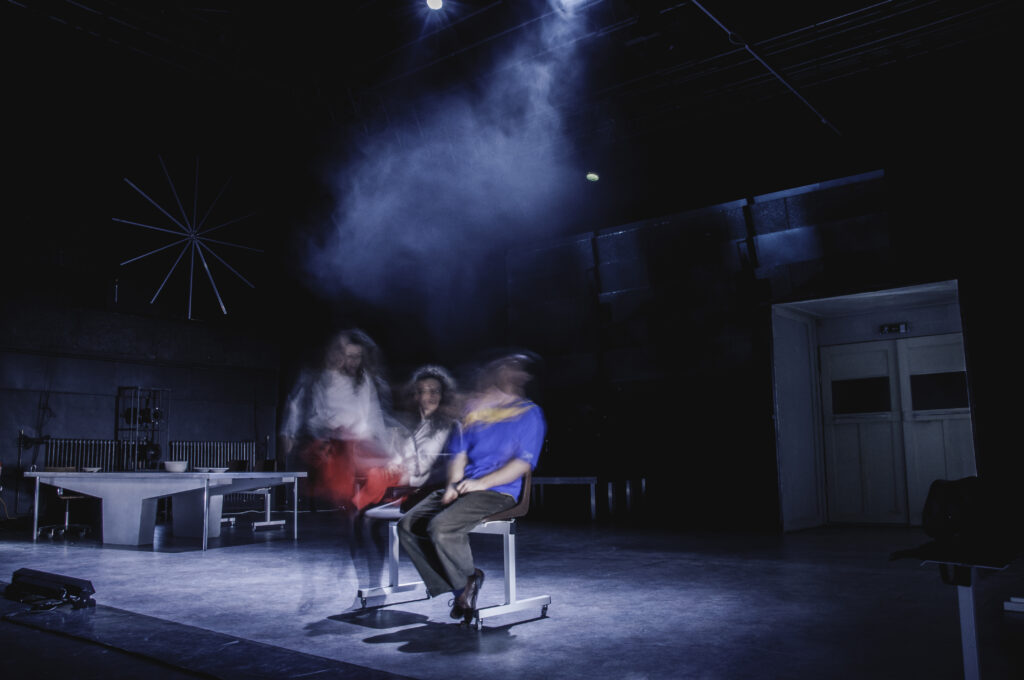
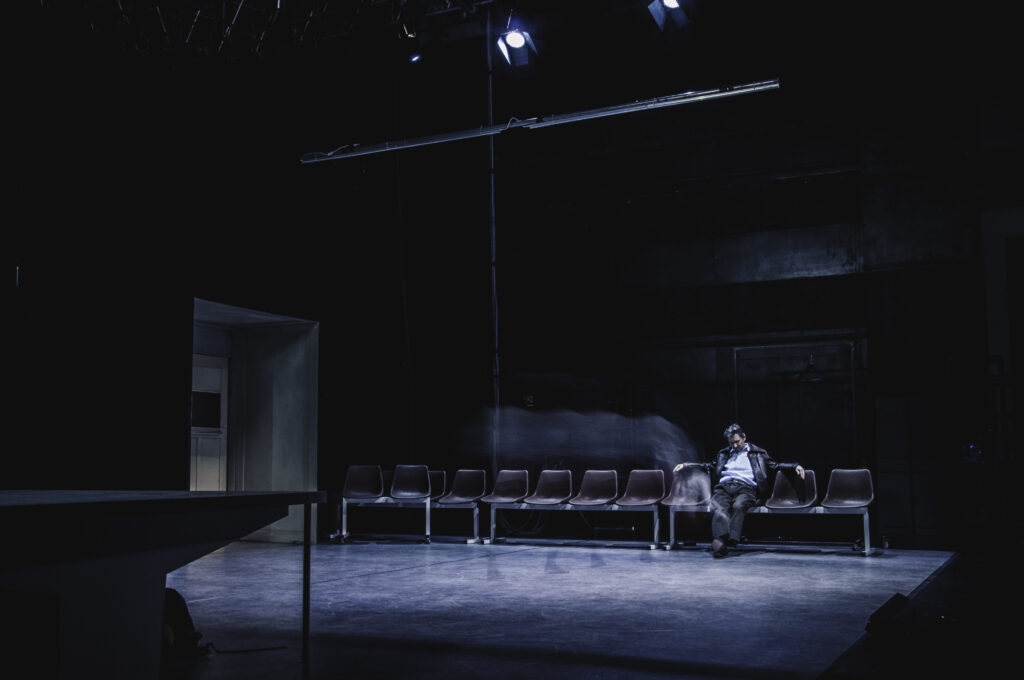
Photos by: Máté Horesnyi, Miklós Molnár
Trailer
Excerpts from Reviews
Synopsis
Interest and counterinterest, conflict and tension – this is what drives drama. In reality, however, it is precisely these things that we die from. Frustration is present at every level of our society. Instead of constructive solutions, we generate new and increasingly strange illnesses, transforming our personalities and hiding behind incomprehensible symptoms, away from the world and ourselves. The performance Sunflower focuses on this contemporary phenomenon, revealing its tragedy and the humor arising from its absurdity.
A young couple, a failing marriage, a house they are about to lose, and a spreading illness. Failures swept under the rug, unspoken accusations, and repressed emotions poison the atmosphere at home. The couple, alienated from each other, drifts through daily life in a fog of problems, all observed keenly by their ten-year-old child.
The play Sunflower primarily examines the relationship between ten-year-old Janka and her mother. The Mother suffers from untreated psychological illnesses, whose symptoms become increasingly extreme as the story unfolds. Across this “minefield” navigates Janka, a child on the threshold of preadolescence. The stories of seven other characters also unfold in the play: the worlds of children and adults appear simultaneously, along with the chasm that separates them.
Cast & Creative Team
Cast:
Kata Pető, Andrea Petrik/Orsolya Török-Illyés, Bálint Formán, Dóra Sztarenki, Pál Kárpáti, Hella Tolnai, Mária Kőszegi, Károly Hajduk
Costume Design: Márton István Szabó
Lighting: Máté Bredán
Music Collaborator: Bálint Formán
Assistant Director: Dóra Tési
Playwright & Director: Andrea Pass
STAFÉTA award-winning production, recipient of a special prize among the 2016 Staféta performances.
The play was selected as one of the three Hungarian dramas for the 2018 EURODRAM (European Network for Drama in Translation).
An English reading performance of the play was staged as part of the NEW YORK Spring Festival at the Bohemian National Hall (2019).
The play was also directed by the Romanian star director Radu Afrim in 2023 at the Tamási Áron Theatre in Sfântu Gheorghe. The trailer can be viewed at the following link: https://www.youtube.com/watch?v=DqKX4GYrhgs&t=6s
Production Photos

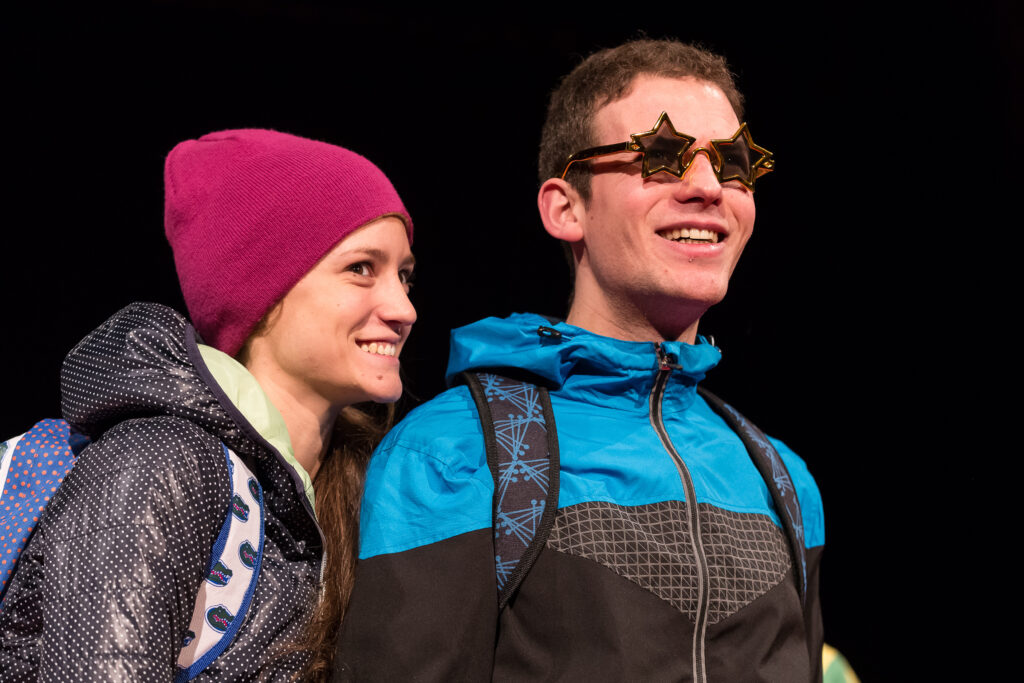






Photos by: Dániel Dömölky
Trailer
Excerpts from Reviews
Synopsis
Protective fathers and worried mothers carefully choose a kindergarten for their children. The teacher is reliable and skilled, the other parents are decent people too, so the children can be safely left in this secure environment. Of course, problems can arise anywhere—even in this dream kindergarten, where the oldest children begin to play strange games. The adults, however, are watchful and won’t let anything go wrong, so they embark on an investigation to find out who is behind the guilty play. Four parents, four children, and a teacher. It’s all about a children’s game—but they take it seriously.

Cast & Creative Team
Cast:
Andrea Petrik, Adrienn Herczeg, Bálint Formán, Adrienn Réti, Milán Schruff
Set Design: Juli Balázs
Costume Design: Kata Pető
Dramaturg: Judit Garai
Music: Gábor Keresztes
Lighting: Máté Bredán, Antal Lohár
Assistant: Dóra Hannig
Writer, Director: Andrea Pass
Special thanks to Katia Bagdi.
The production was realized as part of the Staféta program announced by the Municipality of Budapest.
The creation of the play was supported by the István Örkény Playwright Grant.
Supporters:
Municipality of Budapest, Budapest City Image Nonprofit Ltd., Staféta, Füge Production, Pesti Est, est.hu, Jurányi Production Community Incubator, Budapest Spring Festival
Production Photos






Photos by: Dániel Dömölky
Trailer
Excerpts from Reviews
Synopsis
True Life Lies
The Wandering Dog is an innocent stuffed animal. In its glass eyes flash the great life-lies of adults. It is a toy that connects parents whose children attend the same kindergarten. It travels from family to family, sniffing out every secret. Edina, the femme fatale, hosts a dinner for the kindergarten parents with her child’s father, Vilmos. The stuffed dog arrives as an unexpected guest, accompanied by a slightly demented grandmother, at the alcohol-fueled gathering. The guests recoil in horror, for the Wandering Dog knows everything about them.
The world of the play evokes Hitchcock’s films: an absurd psycho-thriller full of humor.
The production was a great success at the Debrecen Contemporary Drama Festival, where the playwright-director presented the play as a guest of honor.
Judith Halász was nominated for the 2019 Critics’ Award for Best Supporting Actress.
The play has also been published in print in the Kortánc: Contemporary Hungarian Plays collection, and in Polish (translated by Daniel Warmuz) in Dialog magazine, Warsaw.
The Italian translation (translated by Dóra Várnai) was selected in 2021 by EURODRAM – European Network for Drama in Translation – as one of the plays recommended for international publication and staging.
Cast & Creative Team
Mama – Judit Halász
Klaudia (Mama’s daughter) – Tünde Majsai-Nyilas
Misi – Gábor Jászberényi m.v.
Edina – Andrea Petrik
Vilmos (Edina’s partner) – István Hirtling
Melinda (Vilmos’s wife) – Márta Gilicze m.v.
Jutka – Renáta Tar
Kornél (Jutka’s husband) – Zoltán Karácsonyi
Set design: Ágnes Bobor
Costume design: Kata Pető
Dramaturg: Judit Garai
Music: Tamás Keresztes
Plush dog designer: Sosa Juristovszky
Lighting design: Móni Hlinka
Stage manager: Miklós Varga
Prompter: Zsuzsa Kertes
Assistant director: Zoé Efstratiadu / Gergő Patkós
Director: Andrea Pass
Production Photos




Photos by: Dániel Dömölky
Excerpts from Reviews
Synopsis
Drama
The perfect vision gradually develops over the first six to eight months after birth. At first, the brain is not yet able to process the incoming visual information. As the months pass, and the brain develops, the range of sharp vision increases too; we might say we are gradually absorbing the world that surrounds us. We learn to walk and slowly start to recognize every stimulus. Ideally, we grow to love life and cannot get enough of its beauty. However, there is a disease that, along the path toward the end of life, gradually takes away the senses necessary for perception. Our protagonist, Endre, step by step moves away from the wonder that is so difficult to let go of.
“How can one truthfully convey a death notice on stage? It is not easy to talk about illness or the death of loved ones. The subject is epic, yet it carries elements of absurdity and surrealism. I could not rest until I confronted the impossibility of this challenge. Years ago, while running, a writer’s game flashed into my mind. A dramaturgical journey emerging from merciless disease. Then the game quickly transformed into confinement; I could not leave the room until I found the right words. I had never searched for a sentence, a question, an answer for so long. How can one truthfully convey a death notice on stage? Howisthere? Whatisit? Whatisitreally?” (Pass Andrea)
Cast & Creative Team
Writer, Director: Andrea Pass
Cast: Szabolcs Hajdu, Pál Kárpáti, Márton Pallag, Kata Pető, Andrea Petrik, Adrienn Réti
Musicians: Gábor Keresztes, András Csizmás, Ágoston Szabó Sipos
Music: Freakin’ Disco
Set Designer: Botond Devich
Costume Designer: Kata Pető
Costume Designer Assistant: Dorottya Vincze
Lighting Designer: Móni Hlinka
Sound Engineer: Dávid Kovacsovics
Assistant Director: Bori Rezek, Anna Gerstmárt
The play was created with the support of the István Örkény Playwriting Competition.
The production was realized within the framework of the Staféta program announced by the Municipality of Budapest.
Production Photos










Photos by: Máté Horesnyi, Miklós Molnár
Trailer
Excerpts from Reviews
Synopsis
Screenplay by Béla Tarr, adapted for the stage by: Judit Garai and Andrea Pass
Housing shortage, Paks, population policy, vulnerability to the system, evictions, and a broken Kádár emblem that must be carefully pieced back together as if nothing had happened. These are the motifs of Family Nest, Béla Tarr’s first film at the age of 22. If only it were a simple period piece, something we could watch with a touch of nostalgia for our childhood or youth—but it is not. Instead, we watch it with bitter pain, witnessing all that should have long since disappeared. It is a true time travel, spinning forty years back. Or perhaps, on the contrary, is it simply immobility? Human relationships creak and crack while the enclosed family members simultaneously sigh: “If only I had an apartment!”
Cast & Creative Team
Kata Péter
József Gyabronka
Milán Schruff
Judit Hernádi
Ferenc Pataki
Mónika Ullmann
Orsolya Török-Illyés
Norbert Nagy
Costume: Kata Pető
Set Design: Ágnes Bobor
Music: József Iszlai
Cinematography: Csaba Bántó
Lighting: Móni Hlinka
Video & Sound: Máté Bredán / Vince Varga
Stage Manager: Tamás Hódosy
Assistant Director: Zsuzsa Szakács
Dramaturg: Judit Garai
Director: Andrea Pass
Producer: Tibor Orlai
Special thanks to Tamás Keresztes for his assistance.
The play is performed in Hungary with the permission of Béla Tarr.
The production was created in collaboration with TRAFÓ, Orlai Production Office, and FÜGE.
Production Photos
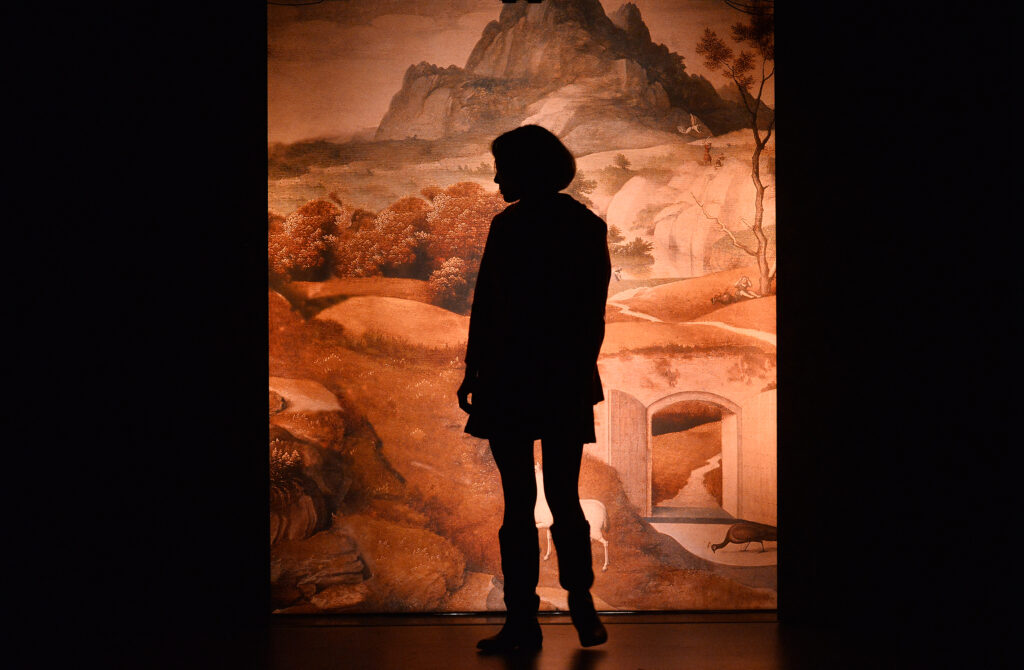
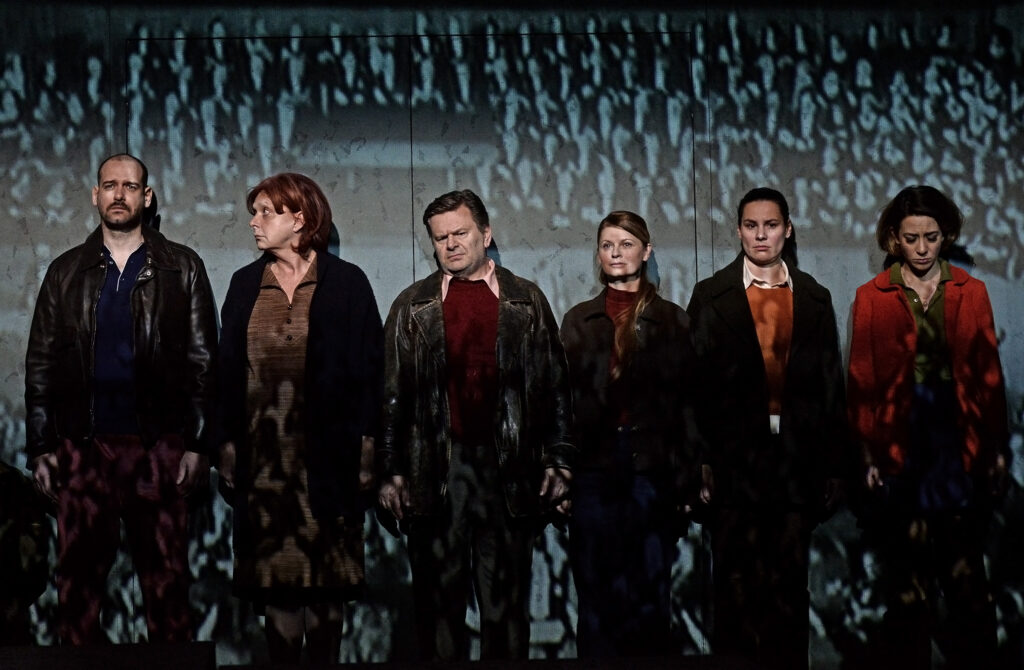
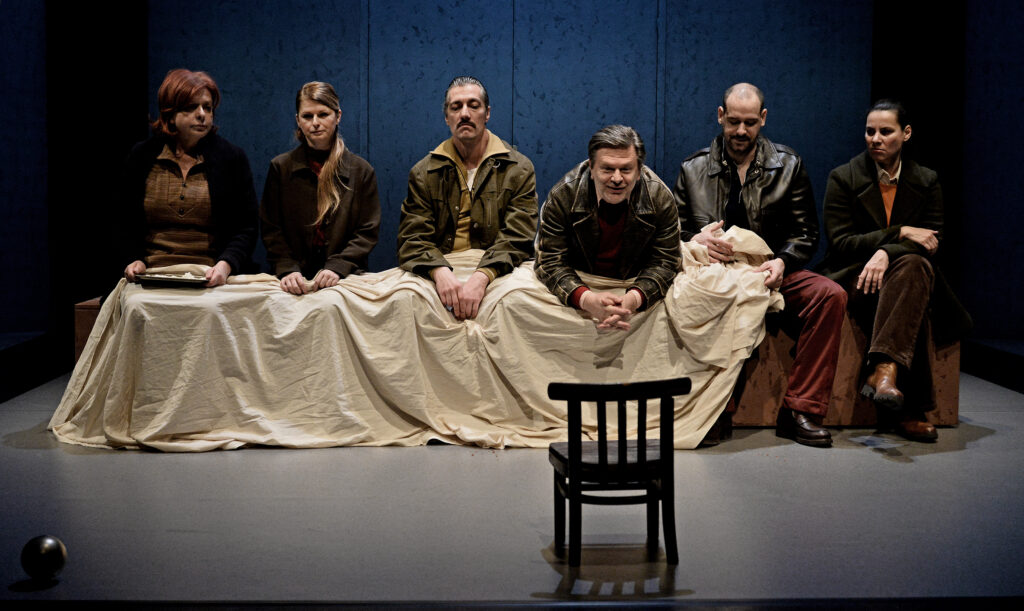
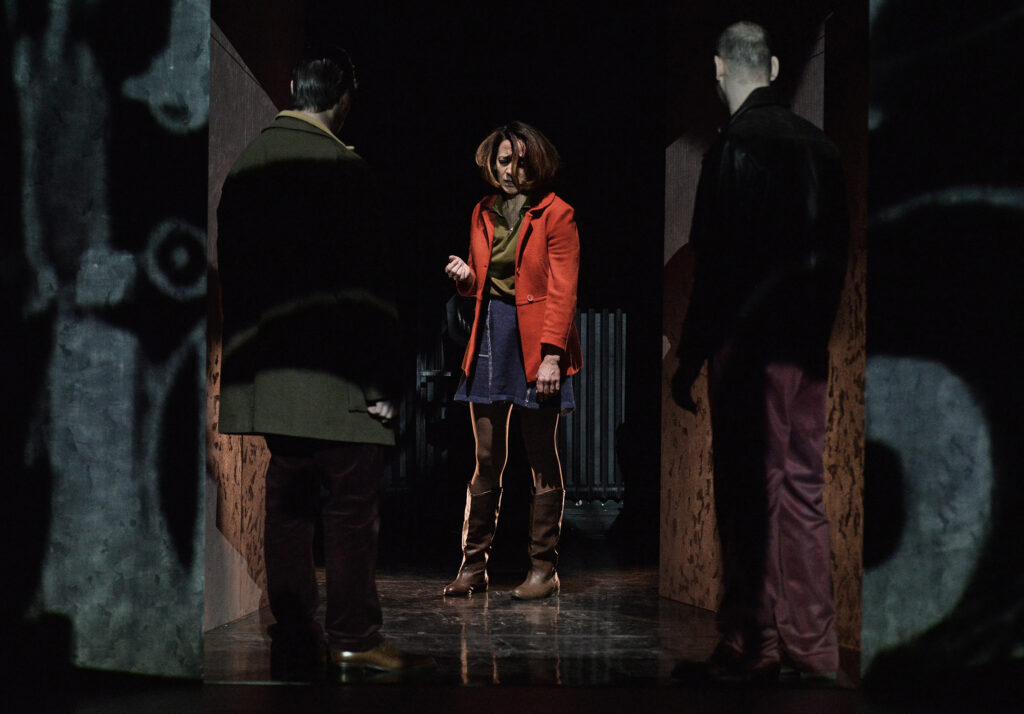
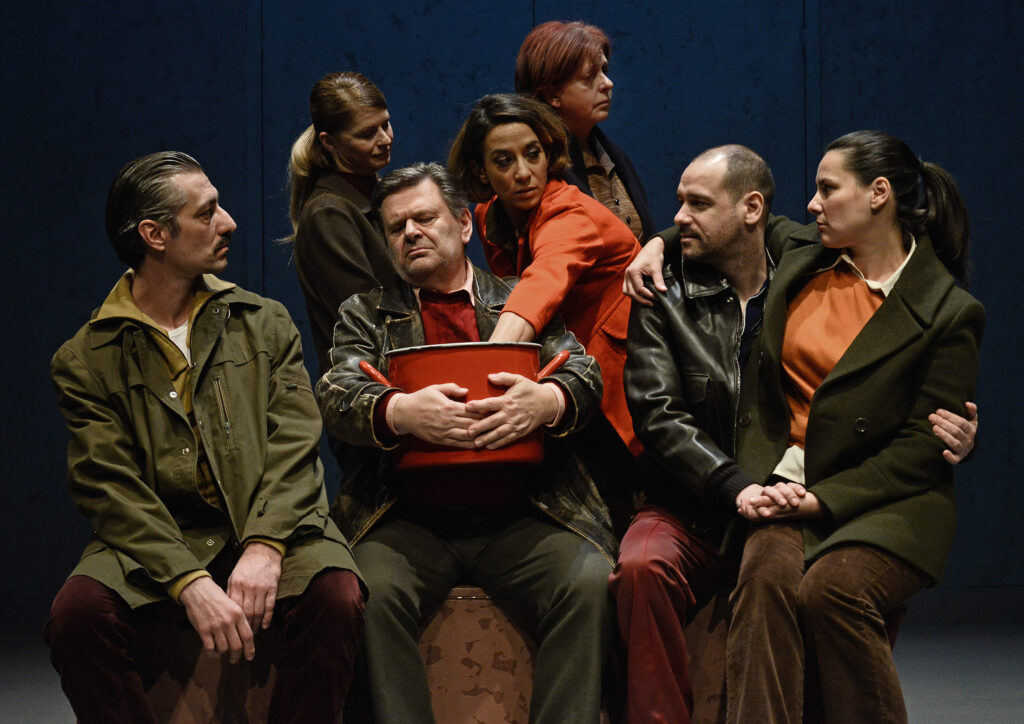
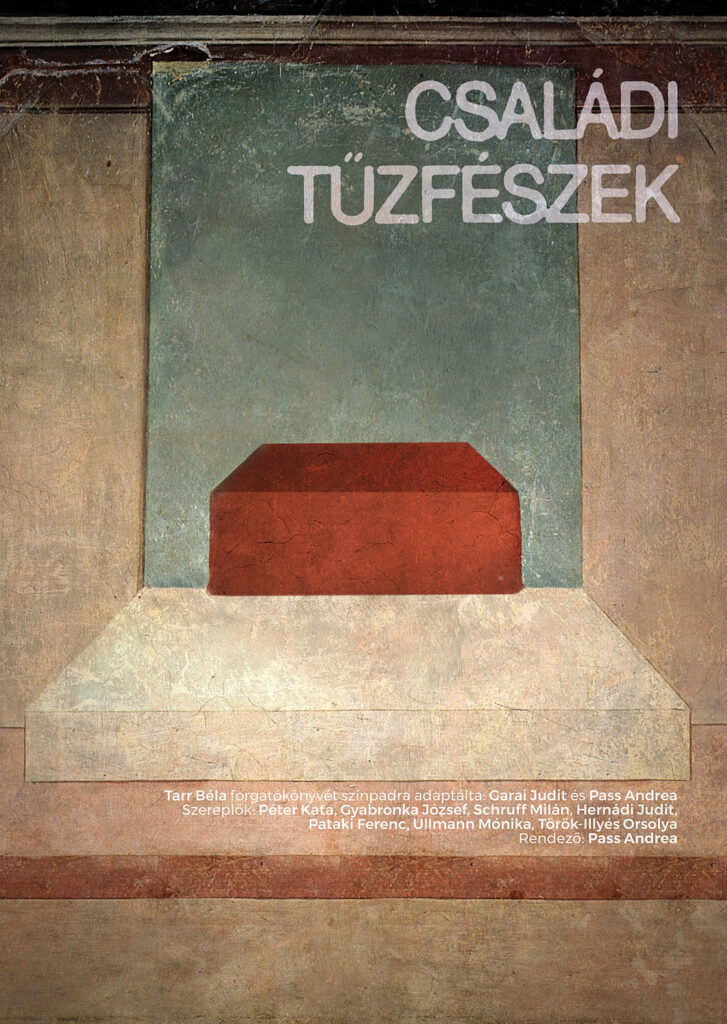
Photos by: Vera Éder
Trailer
Synopsis
Brilliant Frailties in One Act – based on Gogol’s short story The Overcoat
Who is the insignificant one? Well, the one whom the less insignificant consider so.
And who is significant?
Of course, the one who stands above the insignificant. And who stands above the significant?
The one with the more ornate coat. But under the tattered coat, the St. Petersburg Frost can easily sneak in. Akakij Akakijevich, do you hear this? Even the Long-Clawed Tailor said your coat can no longer be mended. A new one must be made! Instead of sable fur, wildcat hair will be used for your collar, cheaper and unnoticed by anyone. Except for the Underworld Shopkeeper. And the Sensitive Clerk, but he’s scheduled for heart surgery anyway. Just don’t trust Fly, the Spitter! He’s not reliable.
Roles
(even possible with up to 8 actors)
Production Photos
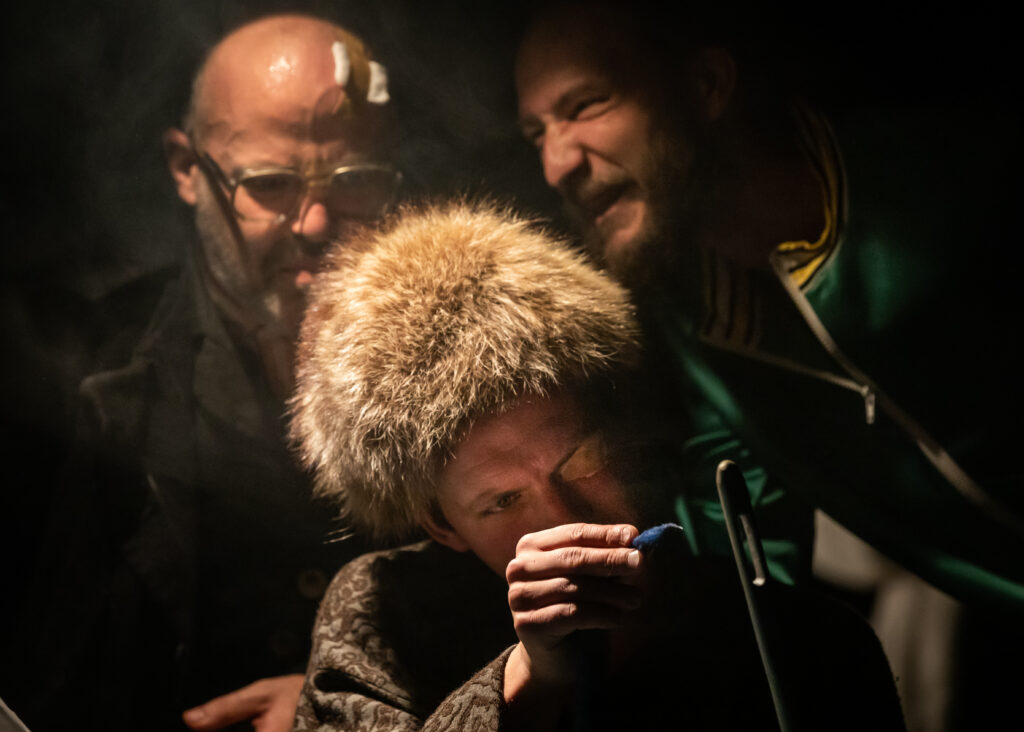
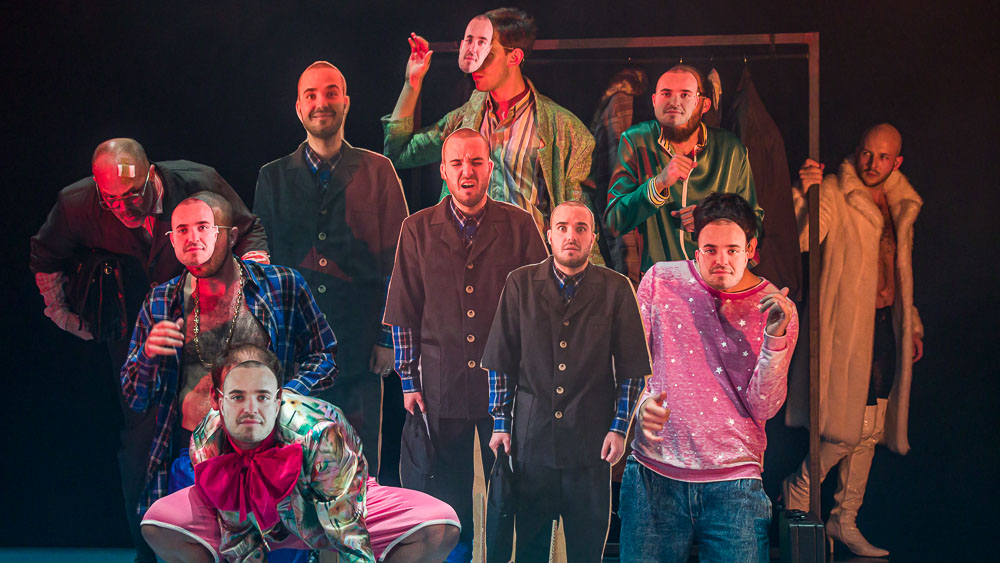
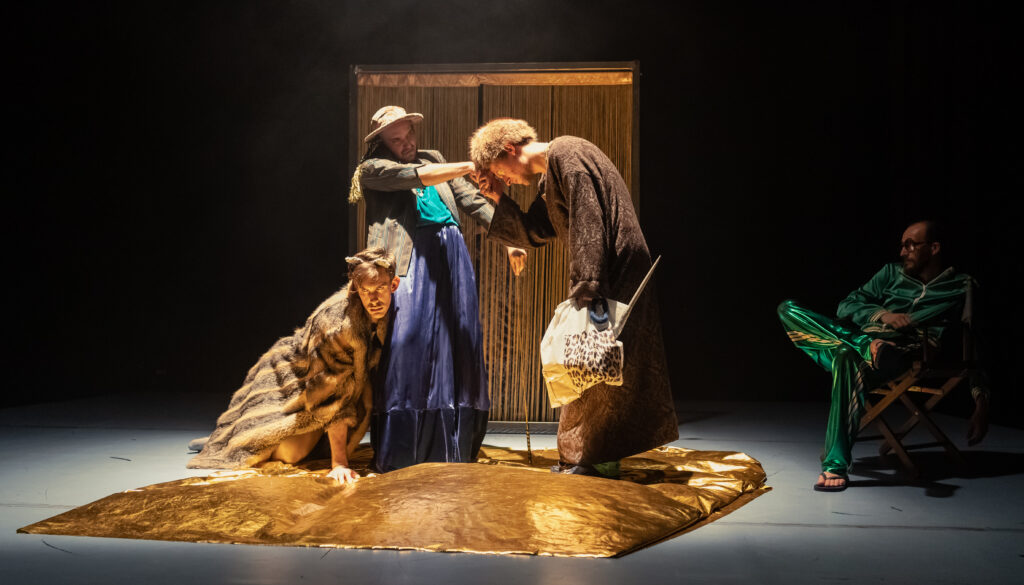
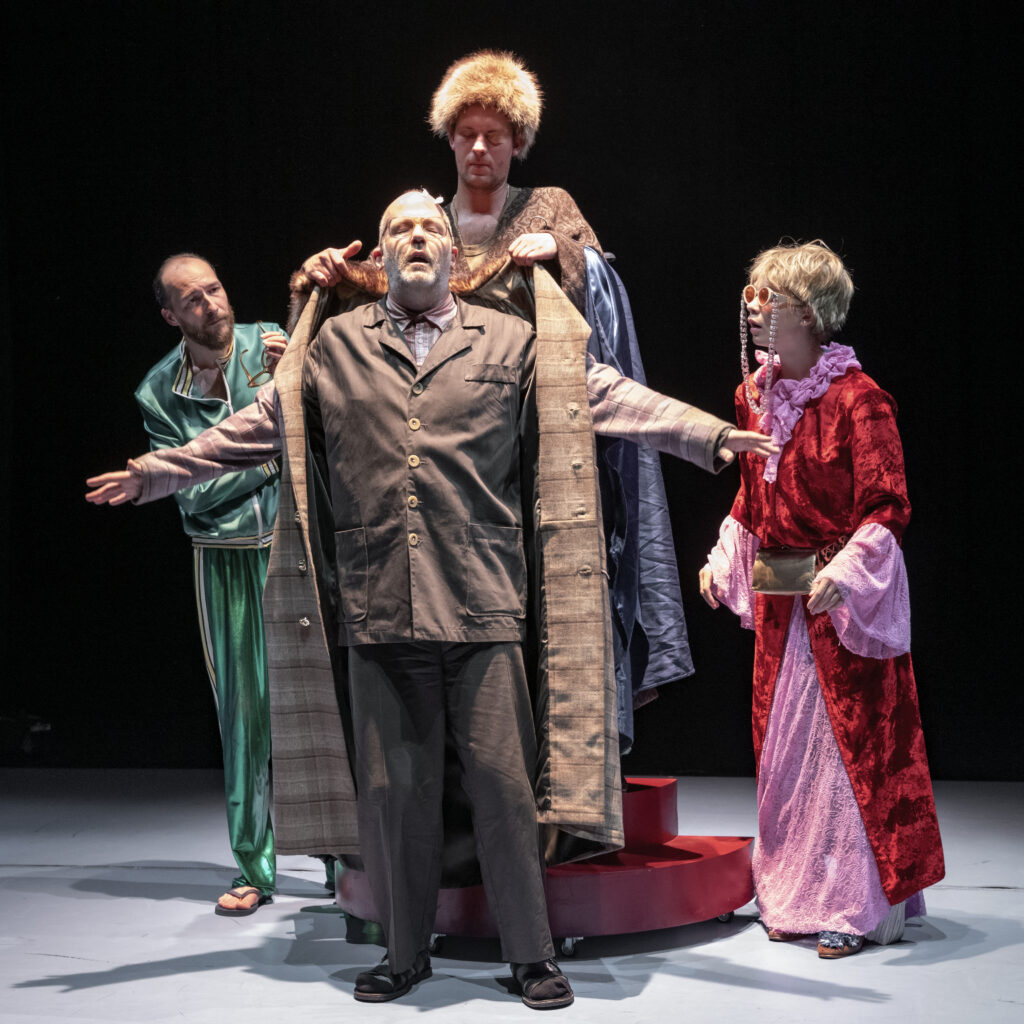
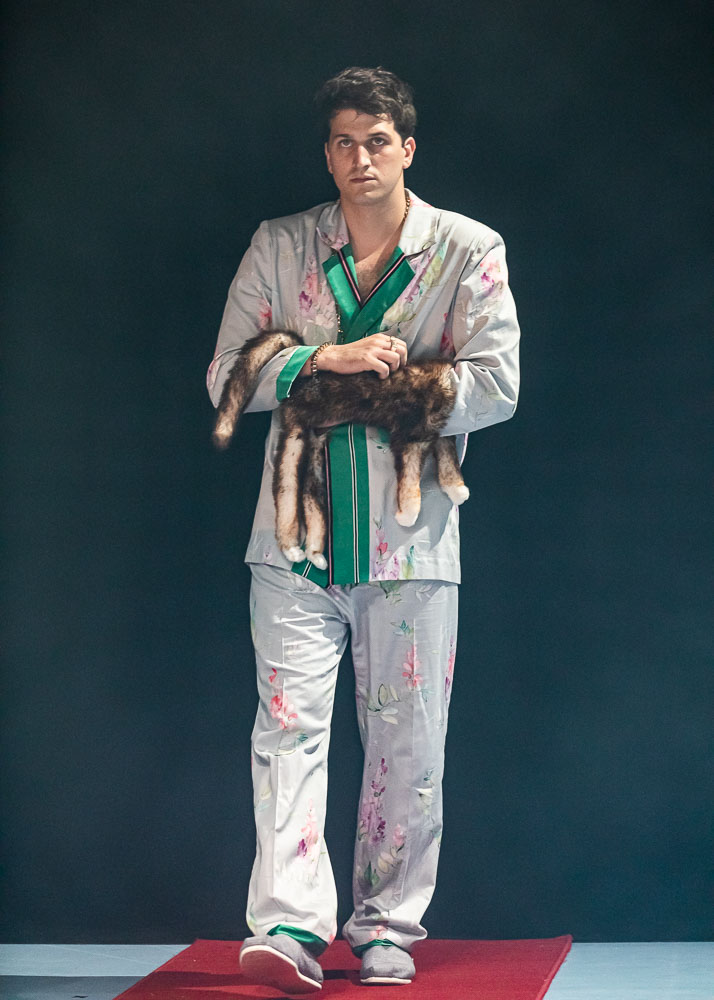
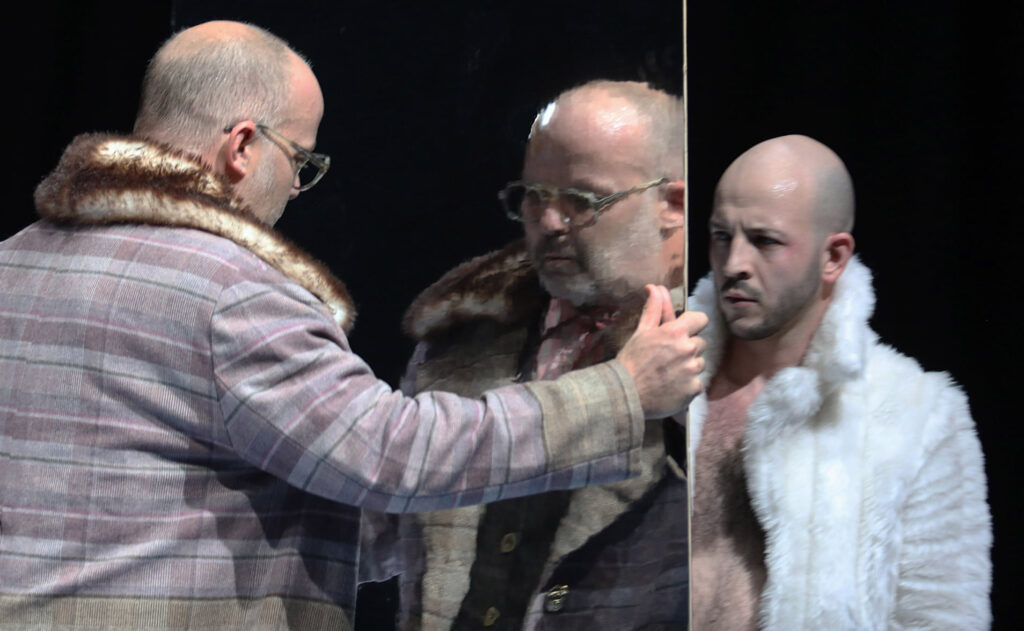
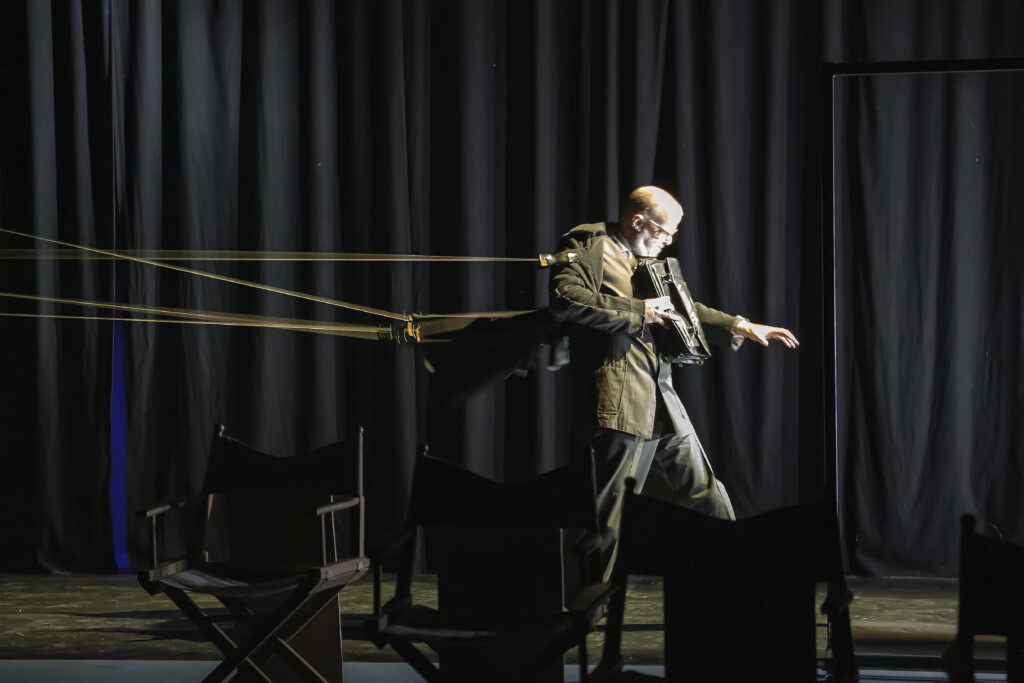
Photos by: Dániel Dömölky
Excerpts from Reviews
Synopsis
Endgame of the Mind Industry
Hommage à Mark Fisher
Once upon a time, because there was a time when a person experienced themselves as a pulsating star, struggling to flicker with the many in the darkness. And once upon a time, because there was a time when a person killed themselves without even noticing. All that happened was that they no longer wanted to flicker with the many, so they took the sky, dipped its bottom in black, and, as a single shining star, directed the gaze from the depths upon themselves. But the other stars, painted dark, also wanted to be one, so they thoroughly washed with thinner, painted their sky black, and directed the naive gaze upon themselves. Thus it happened that all those stars drew closer to the earth. From then on, the glowing dots shone orphaned, while the naive ones dazzled continuously upwards, even when the sky nearly fell on them, held only by a cobweb above the trees. The birds became dizzy, the fish trapped bubbles inside, and infinity, like asphalt, petrified in a sepulchral silence.
Our story’s pixels revolve around the legendary star pedagogue Helga Káldi’s downfall and the mysterious death of her nine-year-old student, Pál Berci. The mosaics are sometimes moved by peculiar, sometimes by mediocre public figures at their whim, while the TikTok seconds of time mercilessly tick away, creating a dizzying sense of the eternal present. The secret of Sodrás Street Elementary School is smeared by our characters’ net narcissism and excrement. Reality, like a centipede, escapes from the burning light of the ego, hiding in cracks, only emerging at night to cross the sleeping visage. In their dreams, traces of the past appear—a Nirvana song or a Rembrandt painting—easily erased by a morning update. They awaken in collective mental exhaustion, volunteering for the Finale of forgetting, to perform the show of fallen angels.
The Finale performance, as its title indicates, depicts a terminal state, with the characters reaching a “mental endpoint” through a symbolically interpretable narrative. Whether the apocalypse follows or something good begins is still unknown. The drama was nearly finished when I read an interview with Márton Gulyás, who named the phenomenon the play addresses: the “mind industry,” created to normalize social injustices and inequalities stemming from our production system, intensively influencing our society. Among others, he referenced Mark Fisher, the British cultural theorist, whose writings provided inspiring theoretical background and whose ideas and conceptual inventions were incorporated into the play. The performance was originally scheduled for December 2020; nearly a year has passed since the limited preview, and we hope the virus spares us so that we can finally reach the premiere. (Pa
Roles
IMRE GELÁNYI
Ottó – the Caretaker
TAMÁS HERCZEG
Pál Imre and Pál Bertalan – Father and his 9-year-old son
JÁNOS MERCS
Márfi Miklós – TV producer and influencer, husband of the Reporter;
(also appears as the Father in a mask; later as a Man at the train station)
ANNA RÁCKEVEI
Káldi Helga – School Principal
ADRIENN RÉTI
Ilona Kovács Larissza – TikTok character; (also appears as the Cleaner in a mask)
HELLA TOLNAI
Kincses Gerda – Teacher; (also appears as the Mother in a mask)
BENETT VILMÁNYI
Ében – celebrity, appears via projection
ZSÓFIA WESSELY
Kedves Adrienn – Reporter and influencer, Miklós’s wife; (also appears as the Mother in a mask)
BÍBORKA KISKOS, ANNA NAGY, ÁDÁM NYÁRI, LÁSZLÓ NYÁRI, MÁTYÁS PAPP, BOLDIZSÁR ROMVÁRI, ALIZ TERECSKEI, BORI TOLNAY, KLARISSZA TÓTH
Students, appear via projection
Dramaturg: Judit Garai
Set and Costume Designer: Ildikó Tihanyi
Video: Máté Bartha
Music: Márk Bartha
Assistant Director: Nóra Homonna
Writer, Director: Andrea Pass
Special thanks to Gábor Katona for his assistance with choreography.
The visuals were inspired by certain videos of Oneothrix.
The play incorporates concepts borrowed from Mark Fisher’s book Capitalist Realism. Translators: Ármin Tillmann, Barnabás Zemlényi-Kovács.
Production Photos
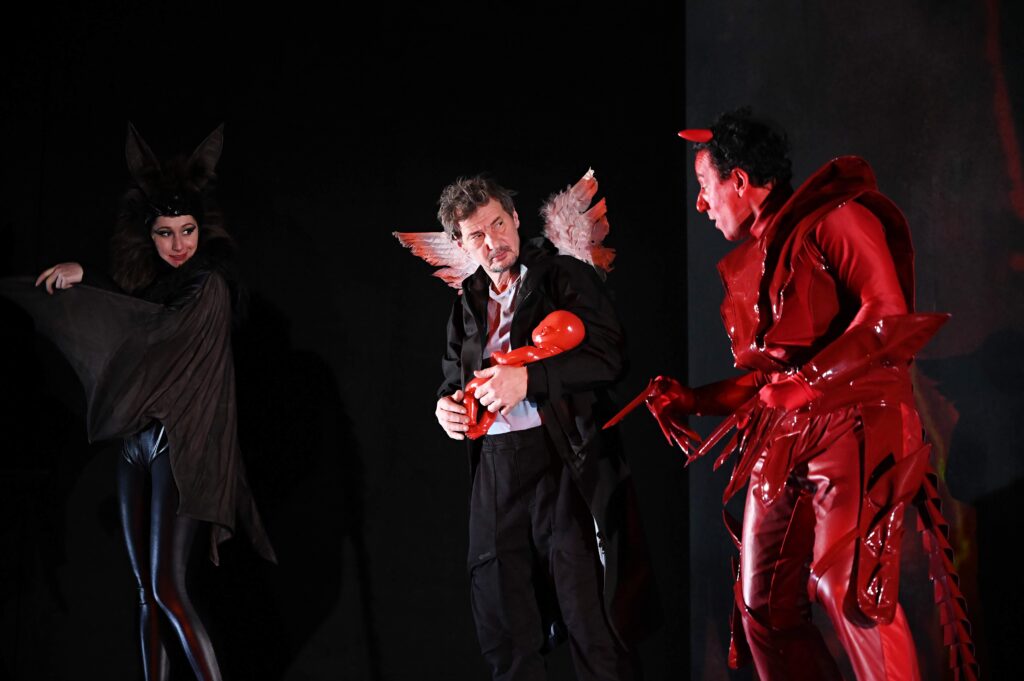
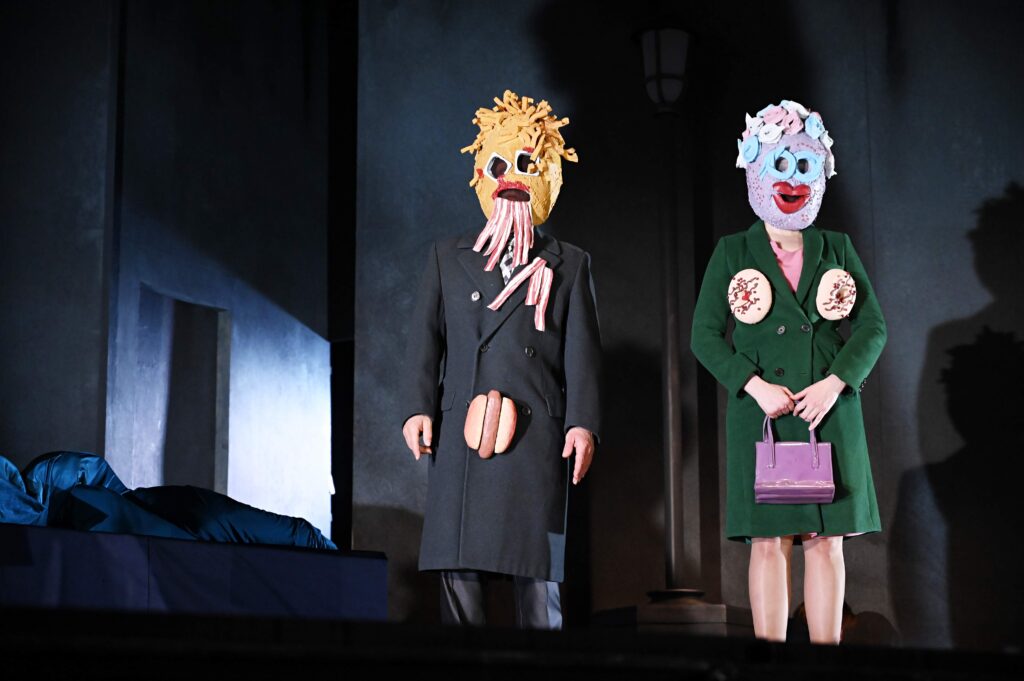
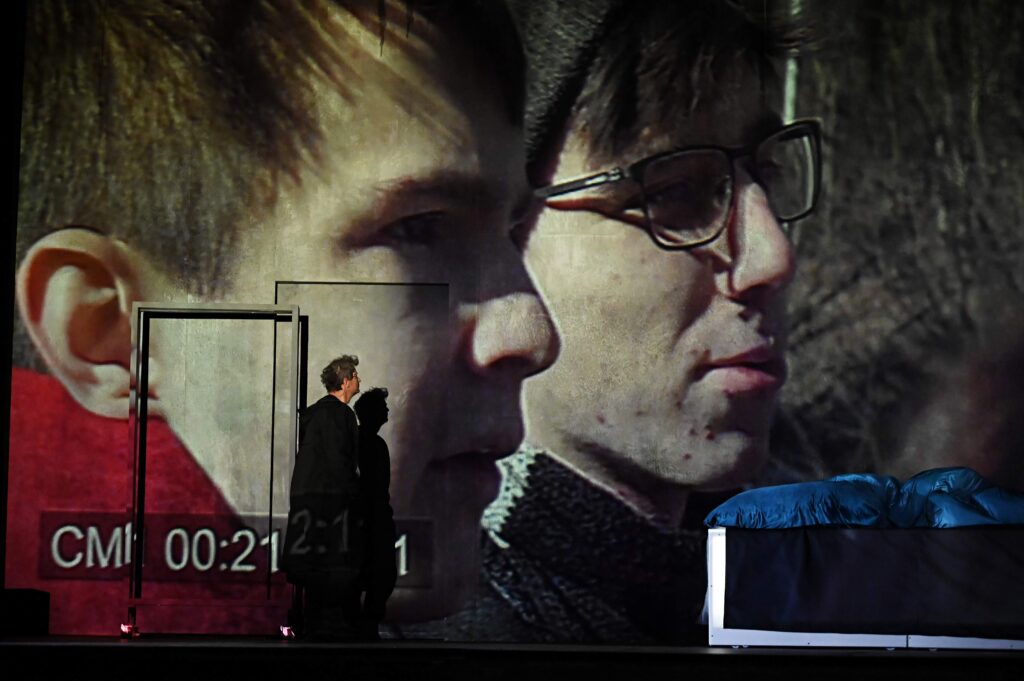
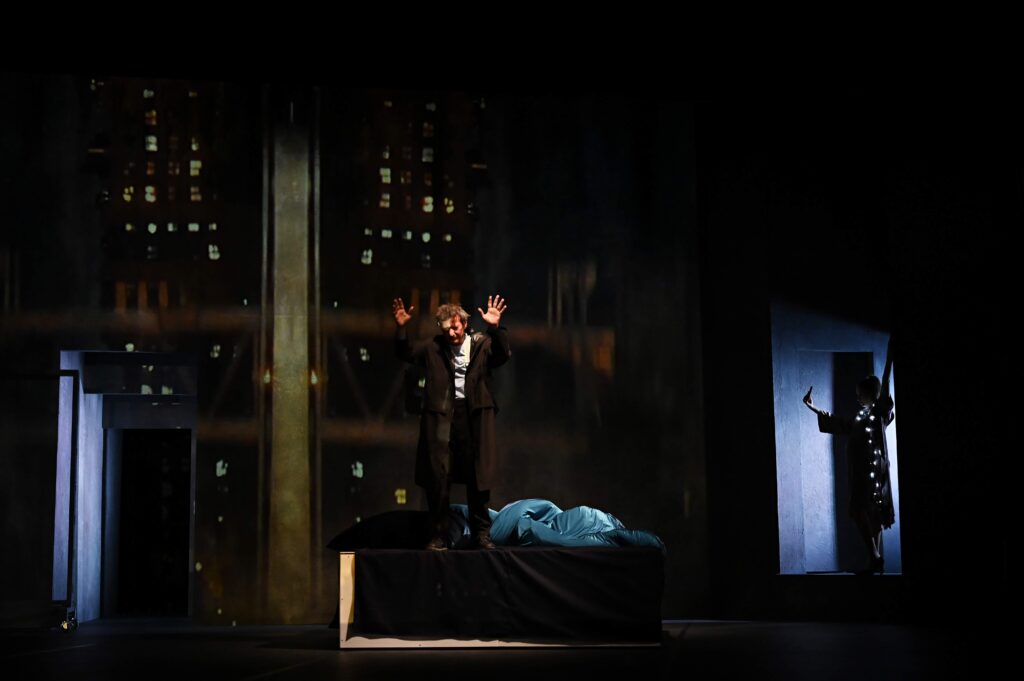
Photos by Máté Bartha
Synopsis
Screenplay by Béla Tarr, adapted for the stage by: Judit Garai and Andrea Pass
Housing shortage, Paks, population policy, vulnerability to the system, evictions, and a broken Kádár emblem that must be carefully pieced back together as if nothing had happened. These are the motifs of Family Nest, Béla Tarr’s first film at the age of 22. If only it were a simple period piece, something we could watch with a touch of nostalgia for our childhood or youth—but it is not. Instead, we watch it with bitter pain, witnessing all that should have long since disappeared. It is a true time travel, spinning forty years back. Or perhaps, on the contrary, is it simply immobility? Human relationships creak and crack while the enclosed family members simultaneously sigh: “If only I had an apartment!”
Cast & Creative Team
Kata Péter
József Gyabronka
Milán Schruff
Judit Hernádi
Ferenc Pataki
Mónika Ullmann
Orsolya Török-Illyés
Norbert Nagy
Costume: Kata Pető
Set Design: Ágnes Bobor
Music: József Iszlai
Cinematography: Csaba Bántó
Lighting: Móni Hlinka
Video & Sound: Máté Bredán / Vince Varga
Stage Manager: Tamás Hódosy
Assistant Director: Zsuzsa Szakács
Dramaturg: Judit Garai
Director: Andrea Pass
Producer: Tibor Orlai
Special thanks to Tamás Keresztes for his assistance.
The play is performed in Hungary with the permission of Béla Tarr.
The production was created in collaboration with TRAFÓ, Orlai Production Office, and FÜGE.
Production Photos






Photos by: Vera Éder
Trailer
Synopsis
Brilliant Frailties in One Act – based on Gogol’s short story The Overcoat
Who is the insignificant one? Well, the one whom the less insignificant consider so.
And who is significant?
Of course, the one who stands above the insignificant. And who stands above the significant?
The one with the more ornate coat. But under the tattered coat, the St. Petersburg Frost can easily sneak in. Akakij Akakijevich, do you hear this? Even the Long-Clawed Tailor said your coat can no longer be mended. A new one must be made! Instead of sable fur, wildcat hair will be used for your collar, cheaper and unnoticed by anyone. Except for the Underworld Shopkeeper. And the Sensitive Clerk, but he’s scheduled for heart surgery anyway. Just don’t trust Fly, the Spitter! He’s not reliable.
Roles
(even possible with up to 8 actors)
Production Photos







Photos by: Dániel Dömölky
Excerpts from Reviews
Synopsis
Endgame of the Mind Industry
Hommage à Mark Fisher
Once upon a time, because there was a time when a person experienced themselves as a pulsating star, struggling to flicker with the many in the darkness. And once upon a time, because there was a time when a person killed themselves without even noticing. All that happened was that they no longer wanted to flicker with the many, so they took the sky, dipped its bottom in black, and, as a single shining star, directed the gaze from the depths upon themselves. But the other stars, painted dark, also wanted to be one, so they thoroughly washed with thinner, painted their sky black, and directed the naive gaze upon themselves. Thus it happened that all those stars drew closer to the earth. From then on, the glowing dots shone orphaned, while the naive ones dazzled continuously upwards, even when the sky nearly fell on them, held only by a cobweb above the trees. The birds became dizzy, the fish trapped bubbles inside, and infinity, like asphalt, petrified in a sepulchral silence.
Our story’s pixels revolve around the legendary star pedagogue Helga Káldi’s downfall and the mysterious death of her nine-year-old student, Pál Berci. The mosaics are sometimes moved by peculiar, sometimes by mediocre public figures at their whim, while the TikTok seconds of time mercilessly tick away, creating a dizzying sense of the eternal present. The secret of Sodrás Street Elementary School is smeared by our characters’ net narcissism and excrement. Reality, like a centipede, escapes from the burning light of the ego, hiding in cracks, only emerging at night to cross the sleeping visage. In their dreams, traces of the past appear—a Nirvana song or a Rembrandt painting—easily erased by a morning update. They awaken in collective mental exhaustion, volunteering for the Finale of forgetting, to perform the show of fallen angels.
The Finale performance, as its title indicates, depicts a terminal state, with the characters reaching a “mental endpoint” through a symbolically interpretable narrative. Whether the apocalypse follows or something good begins is still unknown. The drama was nearly finished when I read an interview with Márton Gulyás, who named the phenomenon the play addresses: the “mind industry,” created to normalize social injustices and inequalities stemming from our production system, intensively influencing our society. Among others, he referenced Mark Fisher, the British cultural theorist, whose writings provided inspiring theoretical background and whose ideas and conceptual inventions were incorporated into the play. The performance was originally scheduled for December 2020; nearly a year has passed since the limited preview, and we hope the virus spares us so that we can finally reach the premiere. (Pa
Roles
IMRE GELÁNYI
Ottó – the Caretaker
TAMÁS HERCZEG
Pál Imre and Pál Bertalan – Father and his 9-year-old son
JÁNOS MERCS
Márfi Miklós – TV producer and influencer, husband of the Reporter;
(also appears as the Father in a mask; later as a Man at the train station)
ANNA RÁCKEVEI
Káldi Helga – School Principal
ADRIENN RÉTI
Ilona Kovács Larissza – TikTok character; (also appears as the Cleaner in a mask)
HELLA TOLNAI
Kincses Gerda – Teacher; (also appears as the Mother in a mask)
BENETT VILMÁNYI
Ében – celebrity, appears via projection
ZSÓFIA WESSELY
Kedves Adrienn – Reporter and influencer, Miklós’s wife; (also appears as the Mother in a mask)
BÍBORKA KISKOS, ANNA NAGY, ÁDÁM NYÁRI, LÁSZLÓ NYÁRI, MÁTYÁS PAPP, BOLDIZSÁR ROMVÁRI, ALIZ TERECSKEI, BORI TOLNAY, KLARISSZA TÓTH
Students, appear via projection
Dramaturg: Judit Garai
Set and Costume Designer: Ildikó Tihanyi
Video: Máté Bartha
Music: Márk Bartha
Assistant Director: Nóra Homonna
Writer, Director: Andrea Pass
Special thanks to Gábor Katona for his assistance with choreography.
The visuals were inspired by certain videos of Oneothrix.
The play incorporates concepts borrowed from Mark Fisher’s book Capitalist Realism. Translators: Ármin Tillmann, Barnabás Zemlényi-Kovács.
Production Photos




Photos by Máté Bartha
Synopsis
Dream Relay
How much are we really in dialogue with our subconscious? Obviously, we don’t have time for such things; we have to conform to the logic of everyday life, the expectations that shape us, and, if we work in theater, to the perceived or real expectations of the audience, the current theatrical trends, our fears, and anxieties, which in our dreams project the horrific images of our humiliating failures. The primitive unconscious, the repository of our instincts, ruthlessly punishes individual arrogance and reminds us that the images it holds are shared! In art, when we explore the creative energy hidden in our subconscious, our own intellectual development can take shape. Our rehearsal process was an experiment to reach the collective subconscious of the fifth-year puppetry class and the creative team of the exam performance. Our dreams increasingly intertwined; we would occasionally appear in each other’s dreams, forming a shared dream network, while also realizing that letting go of the red helium balloon labeled REALITY is not as easy as it seems.
Cast & Creative Team
Petra Ács
Sára Bánky
Bendegúz Bartha
Ági Bartos
Bettina Csarkó
Toma Hrisztov
Attila L. Nagy
Laura Podlovics
Máté Szekeres
Set Designer: Ágnes Bobor, Mira Simonyi-Lengyel
Costume Designer: Mira Simonyi-Lengyel
Costume Assistant: Marcell Baranyai
Makeup: Eszter Sorosi
Assistant Directors: Aliz Terecskei, Klarissza Tóth, Boglárka Tajti
The creators’ dreams and improvisations were compiled and supplemented by: Andrea Pass
Director: Andrea Pass
Texts used: Andalusian Dog (screenplay excerpt), Tibor Haja: Atonement, Word-Ghetto
Head Teacher: Edina Ellinger.
Duration: approx. 75 minutes
Production Photos
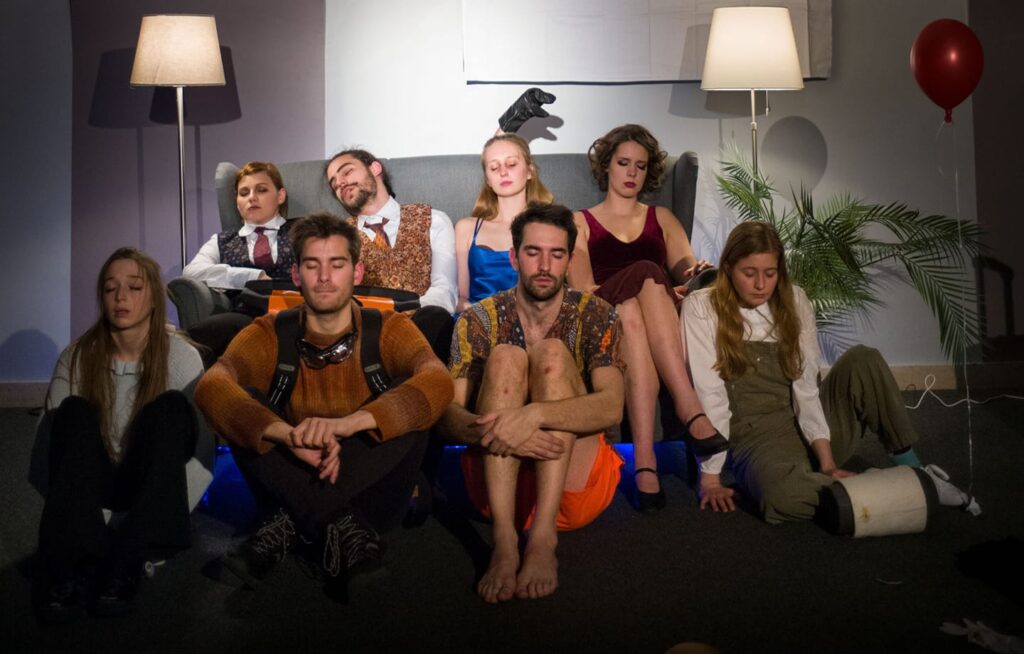
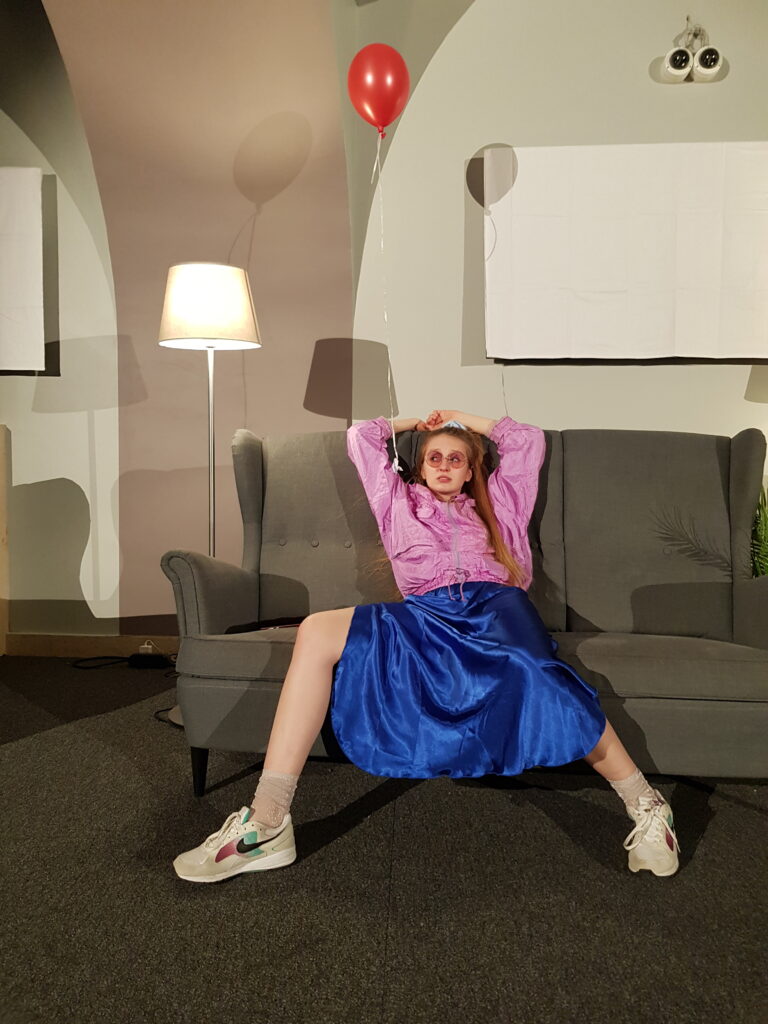
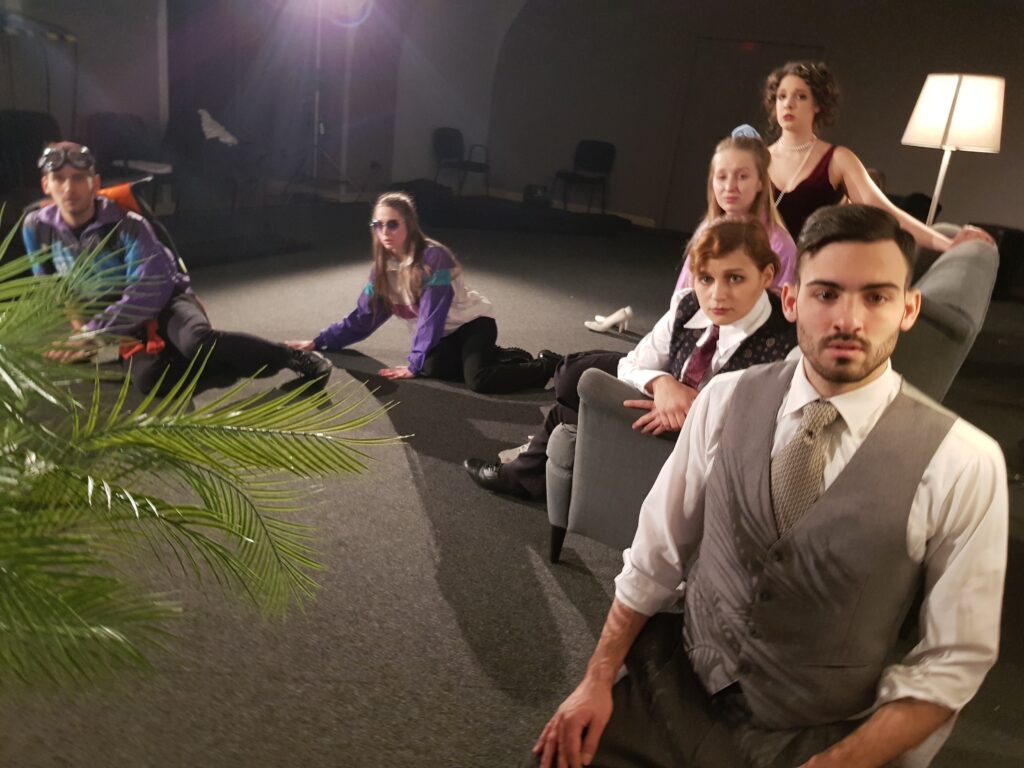
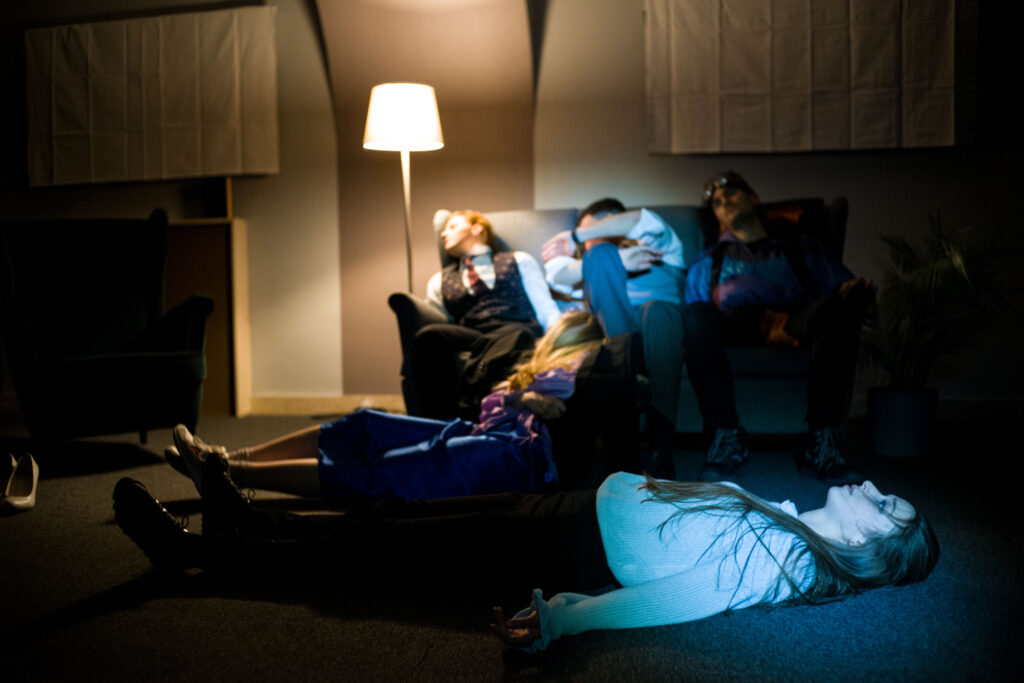
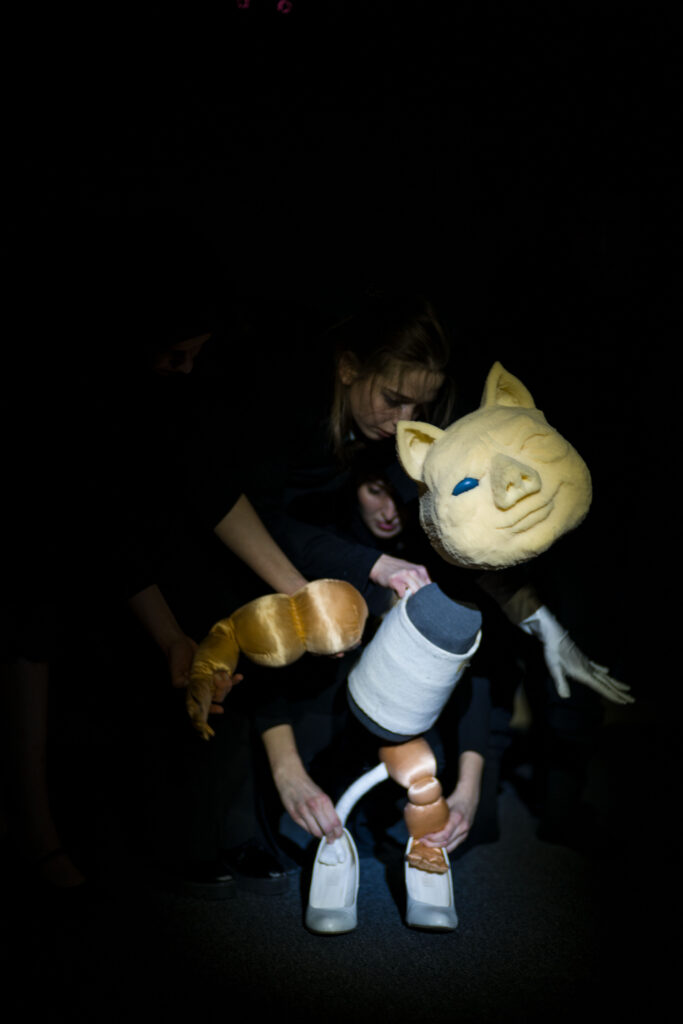
Photos by: Lázár Todoroff
Promotional Video
Synopsis
Musical boulevard road movie for young adults
and for other-age audiences interested in their issues
Featuring trash muppets, the DANTE CASINO cast, and guests
Based on a thorough reworking of the play Budapest Polaroid, originally written for the Budapest150 drama competition
"The world is beautiful. Oh, how beautiful! Could a story begin like this? This is where we should get to, right? If I think about it more, I might realize that I’m in quite a predicament. Me, this marvelous, fragile creature of this unfathomable universe. I could also wonder how much longer I will live. And how will I spend the fantastic moments ahead of me? What should I make come true? Do I even have dreams? Do I want… what exactly?… Anything at all? Will I be able to accomplish it? Will I be able to… anything? Or is everything fine just the way it is? Who am I really? A heart trapped in a sponge, endlessly beating? Do I even know what I want? Or am I satisfied with simply being happy? Here, there, and everywhere?"
Cast & Creative Team
Máté Dezső Georgita
Máté Martinkovics
Laura Podlovics
Bence Szalay
Olivér Rákos
Dániel Papdi
Andor Isépy
Dalma Tenki
Kata Bartsch
Mátyás Papp
Lili Lujza Szirtes
Csaba Szendrői
Set Design: Anna Fekete
Costume: Zsófia Osgyányi
Lighting: Ádám Langó
Assistant: Lili Lujza Szirtes
Writer, Director: Andrea Pass
Special thanks for Lujzi’s monologue to Bíborka Kiskos, for the music to the ELEFÁNT and ANALOG BALATON bands, for puppets other than the Bunny to Gábor Palya, for one audio recording to Balázs Benő Fehér, and for the wheelchair to TÁP Theatre.
Production Photos
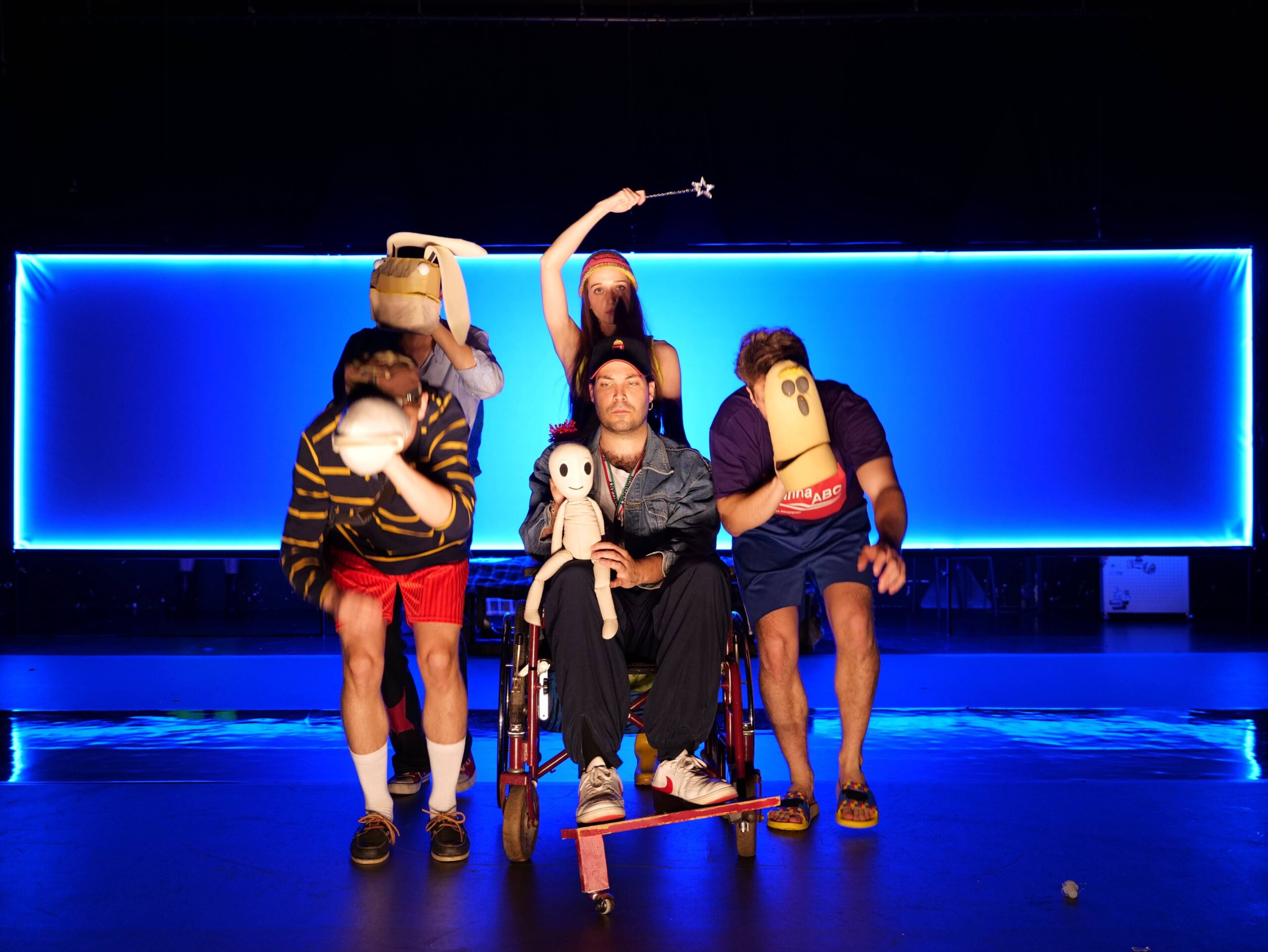
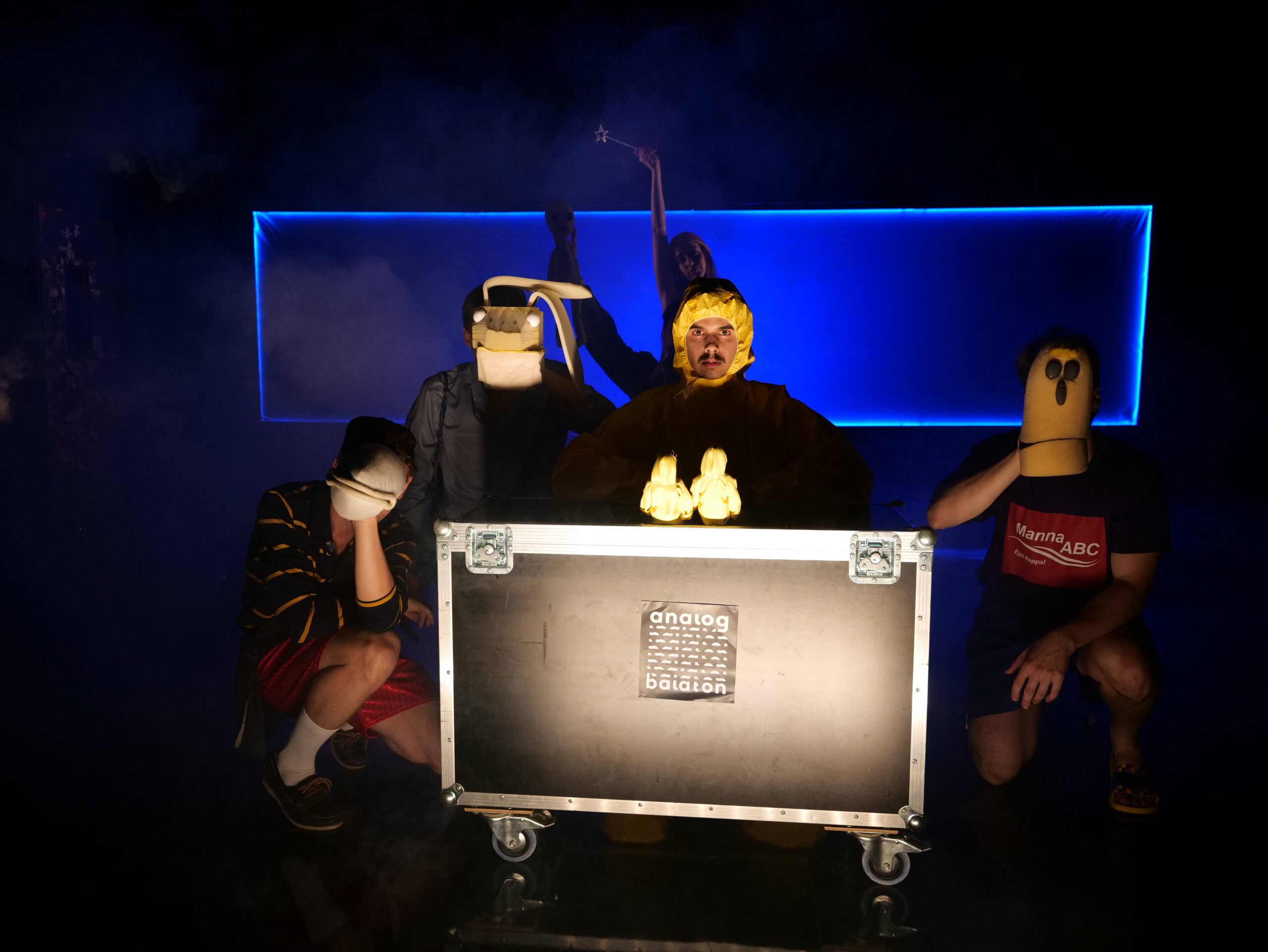
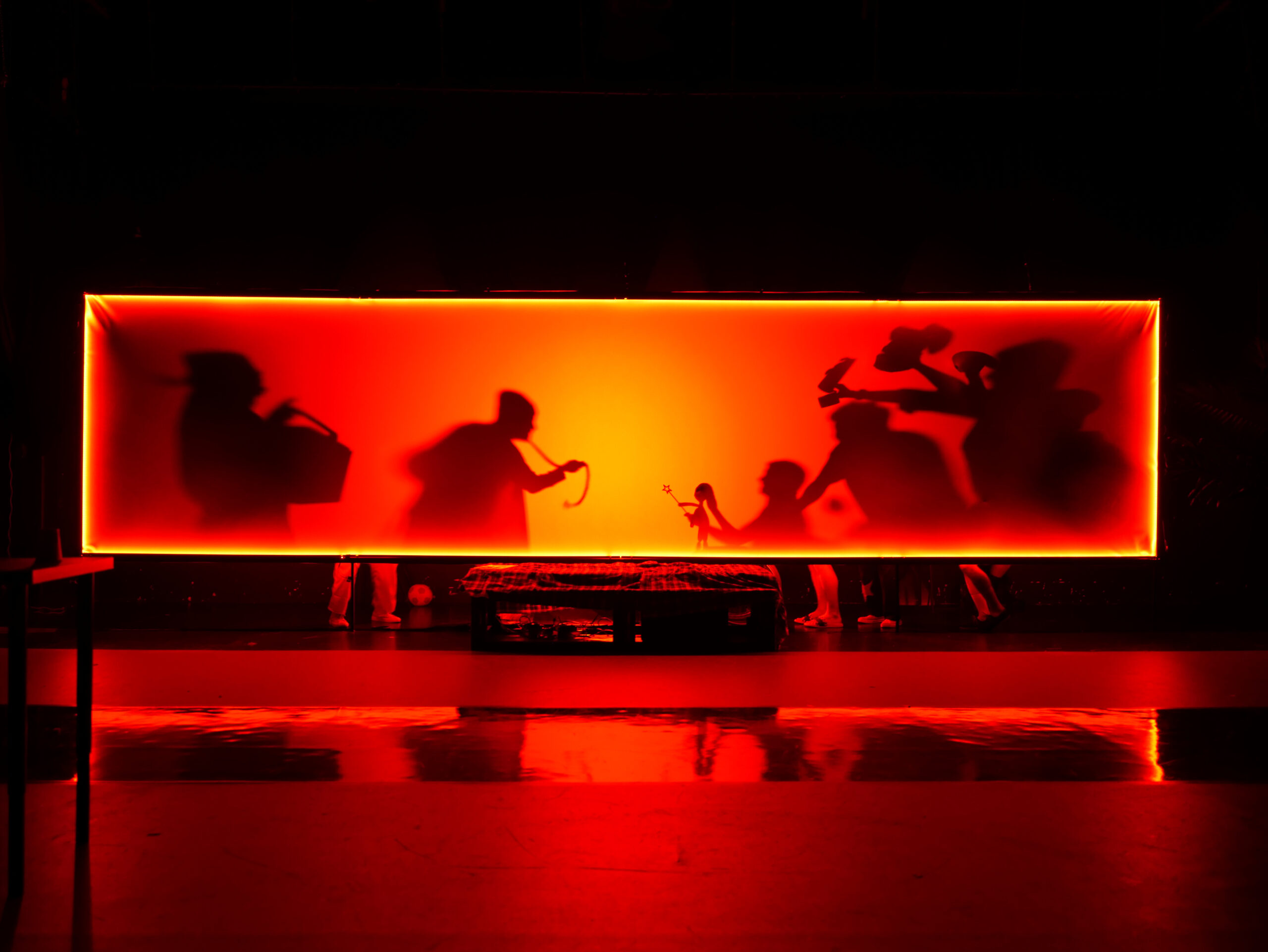
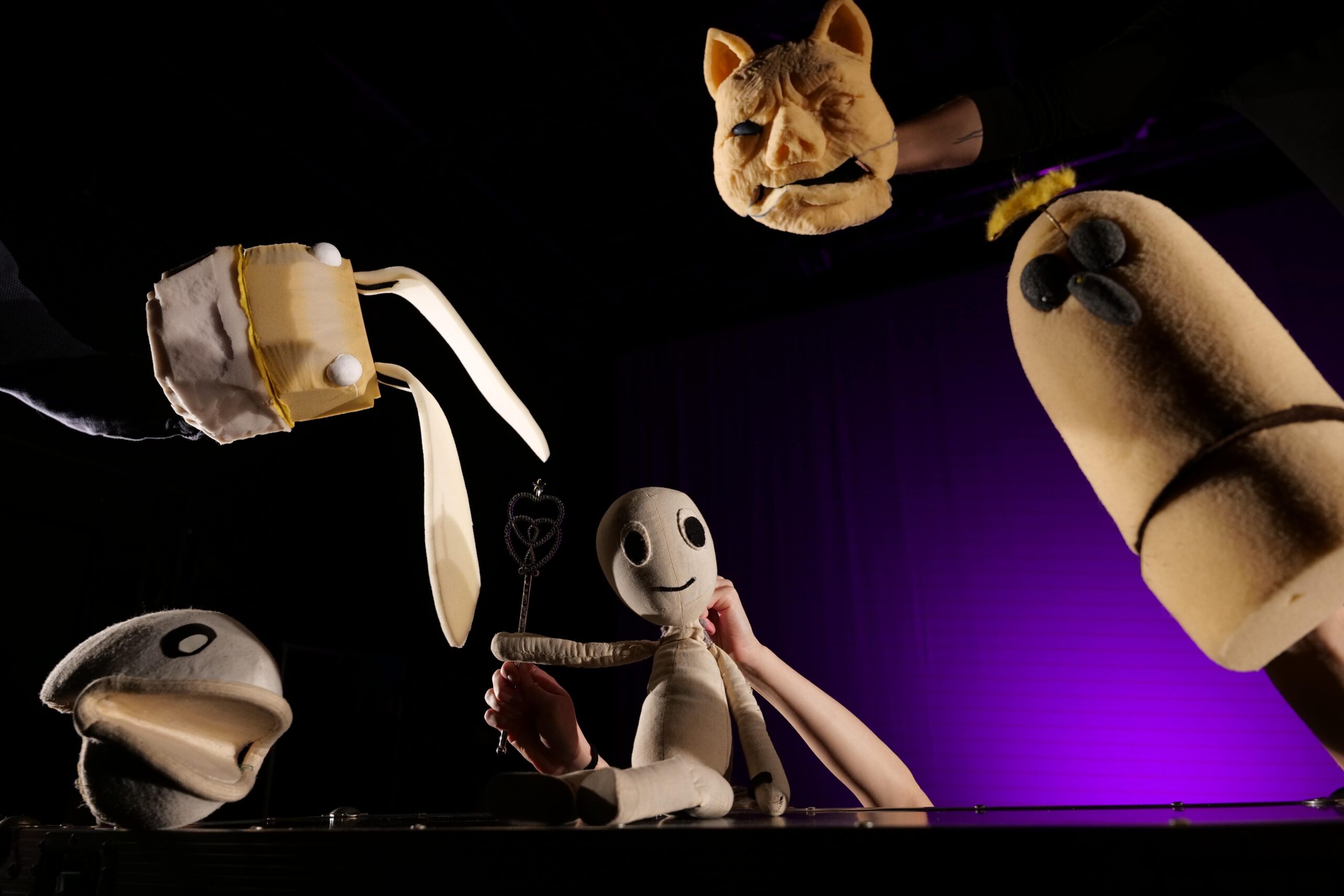
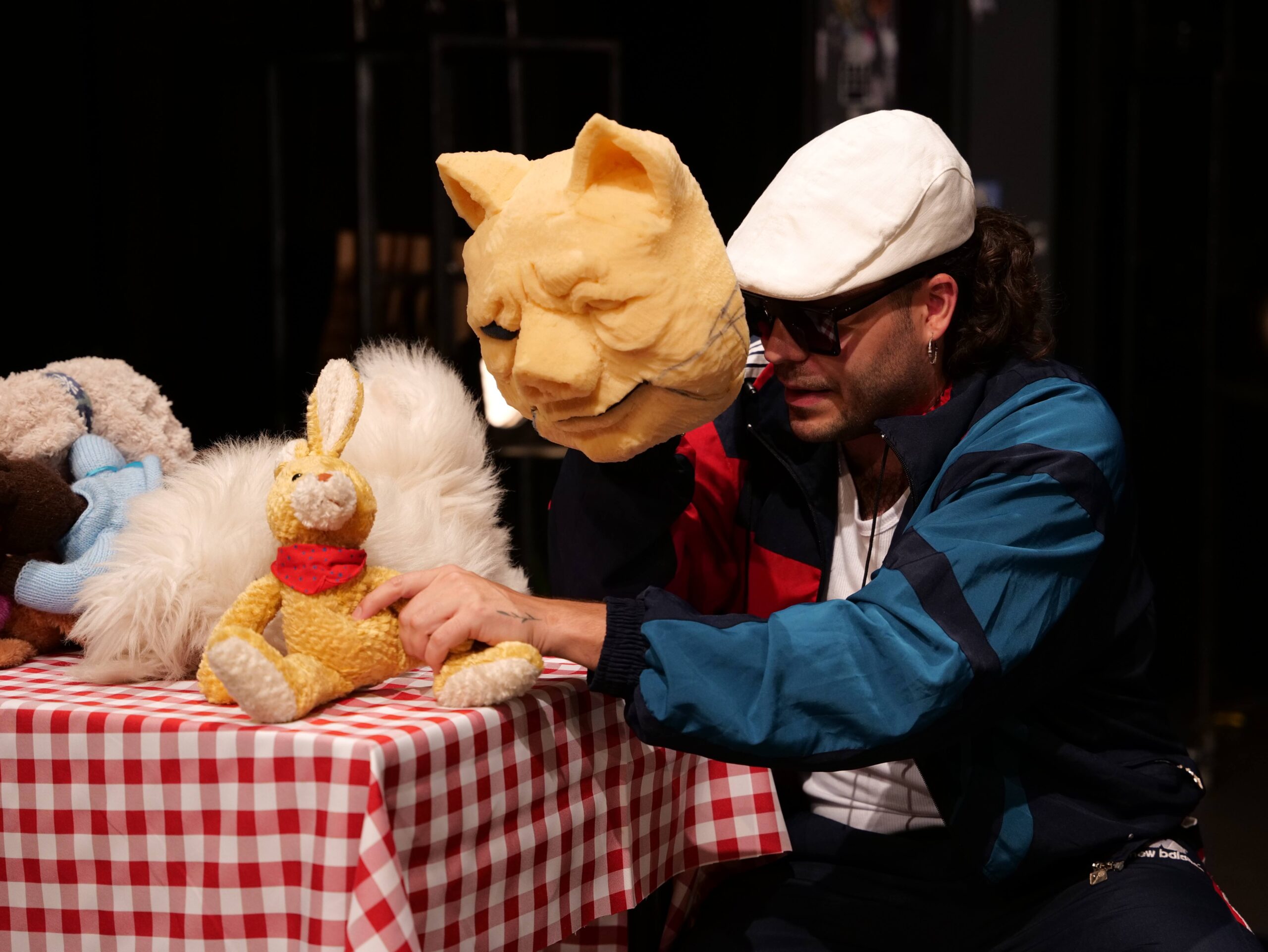
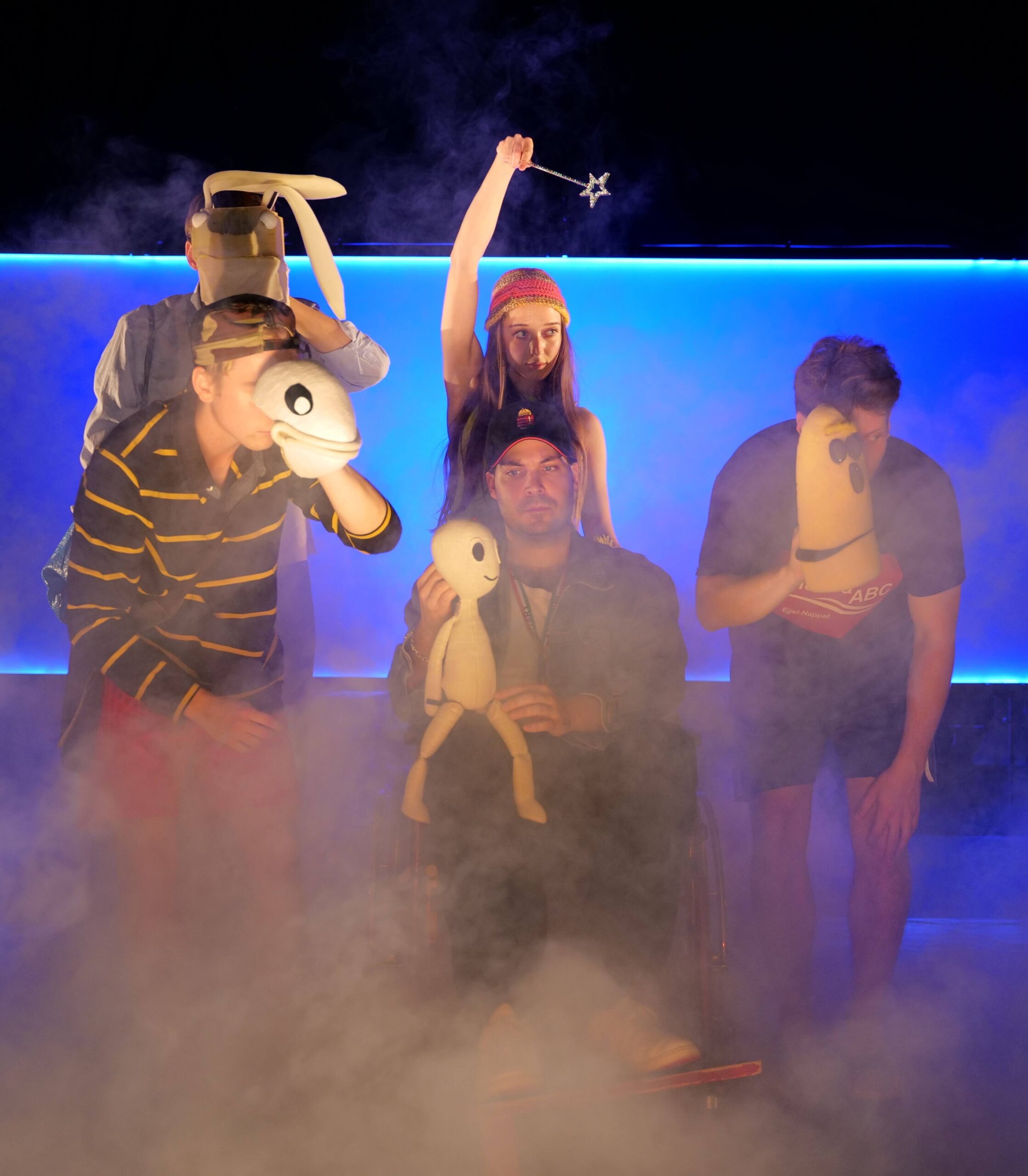
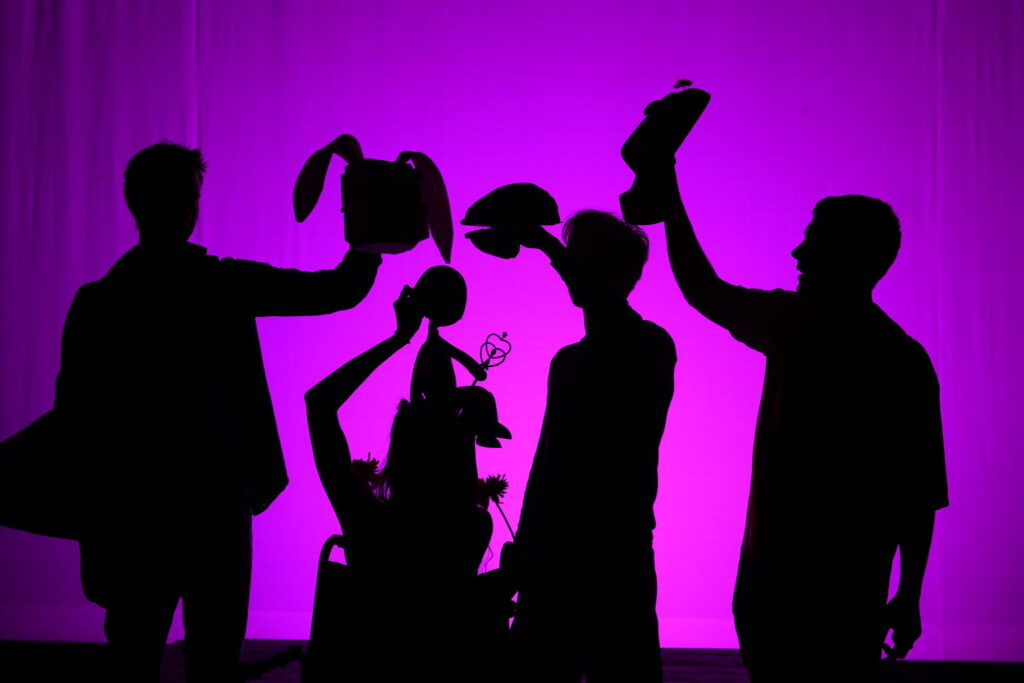
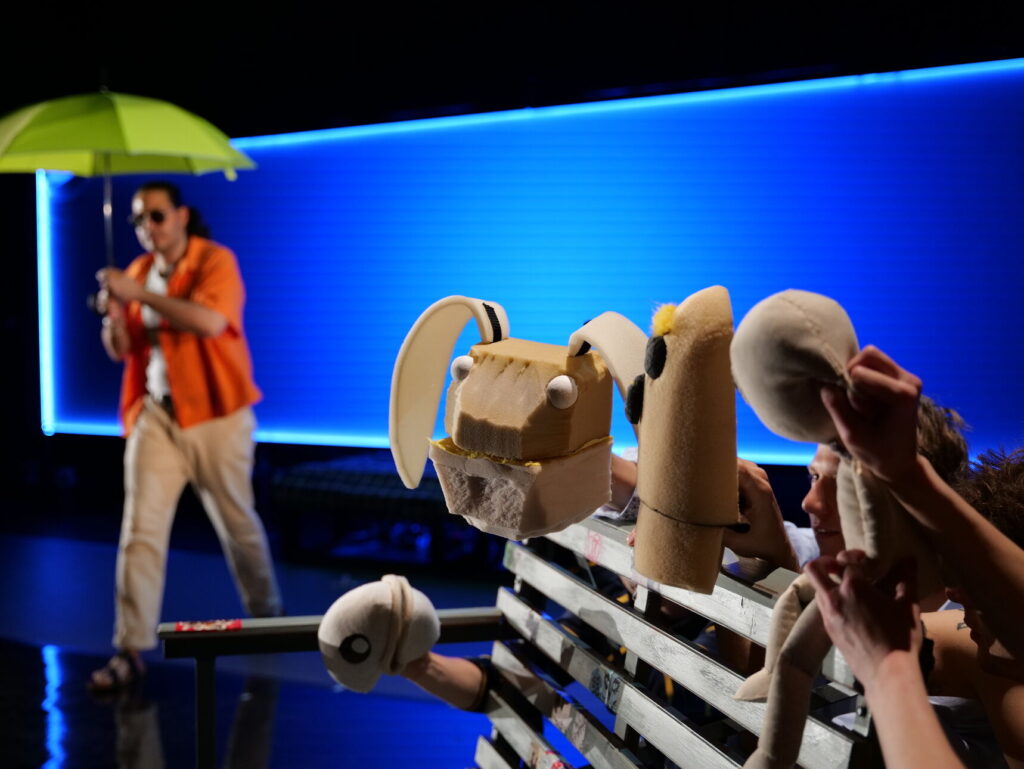
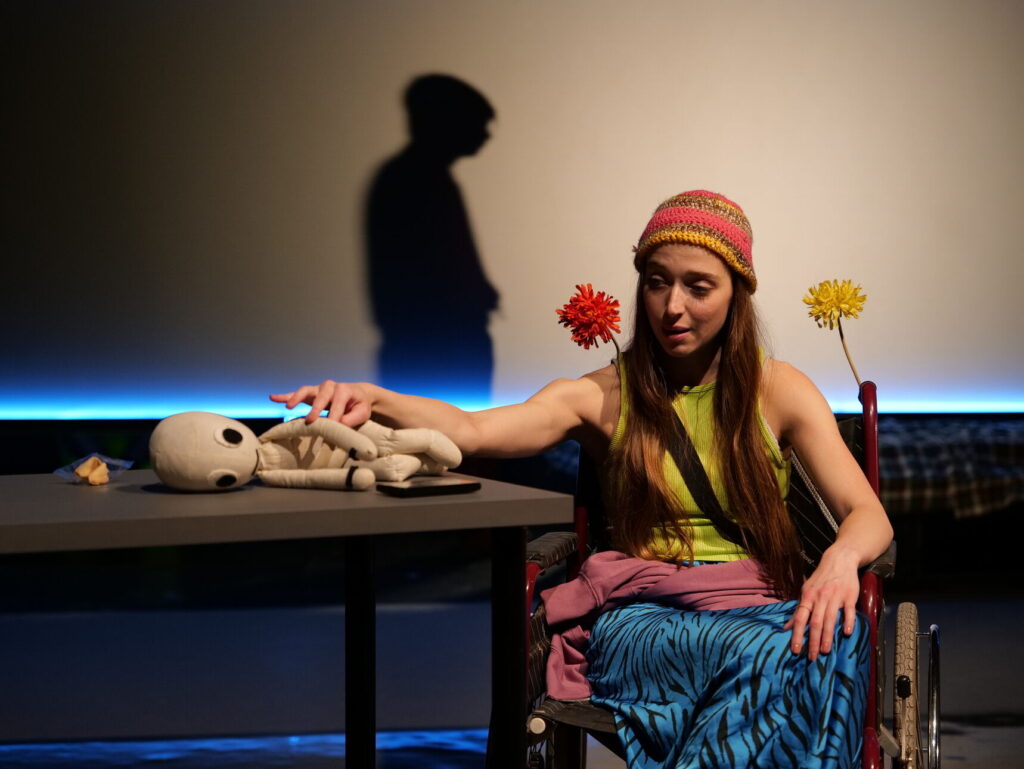
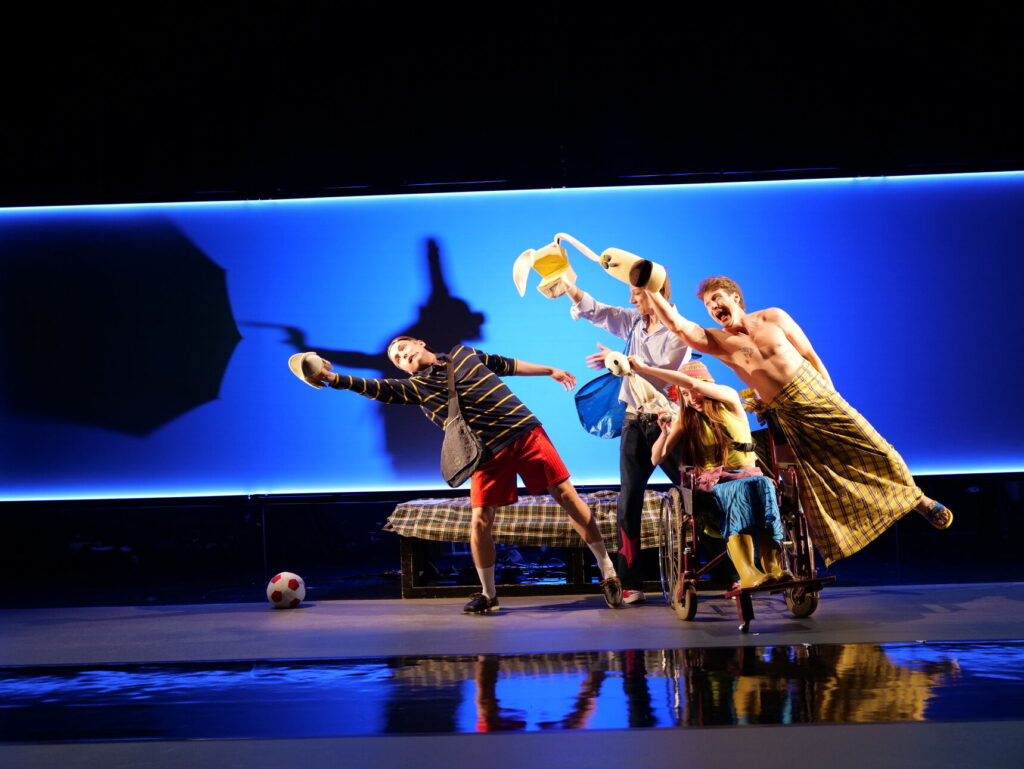
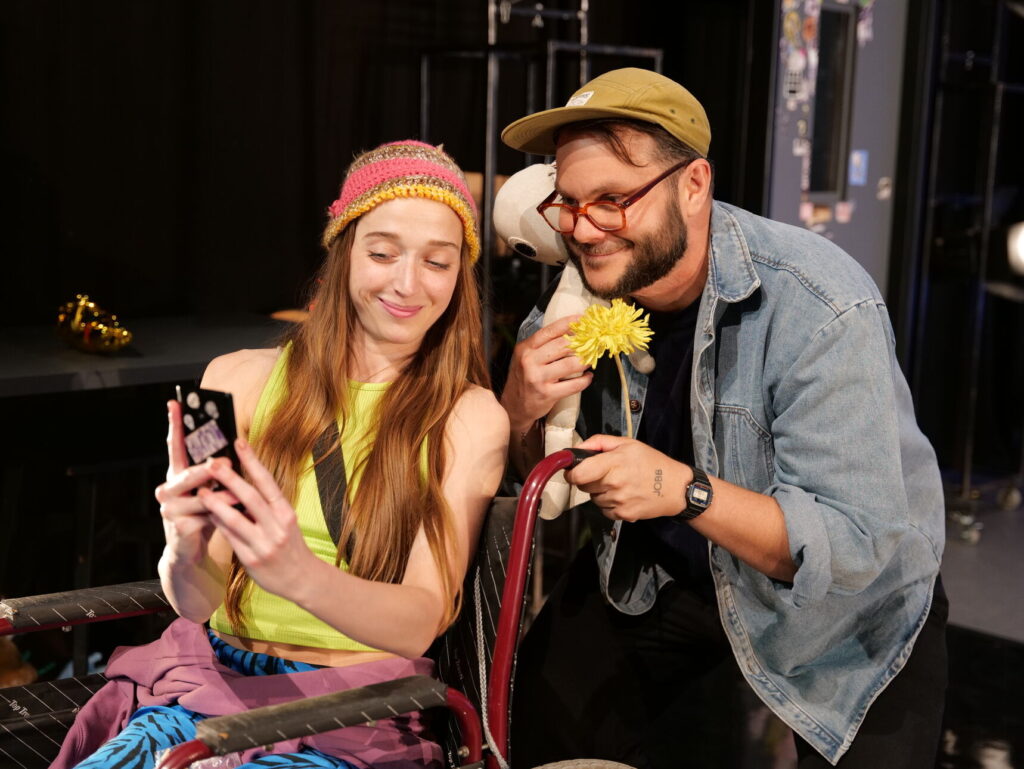
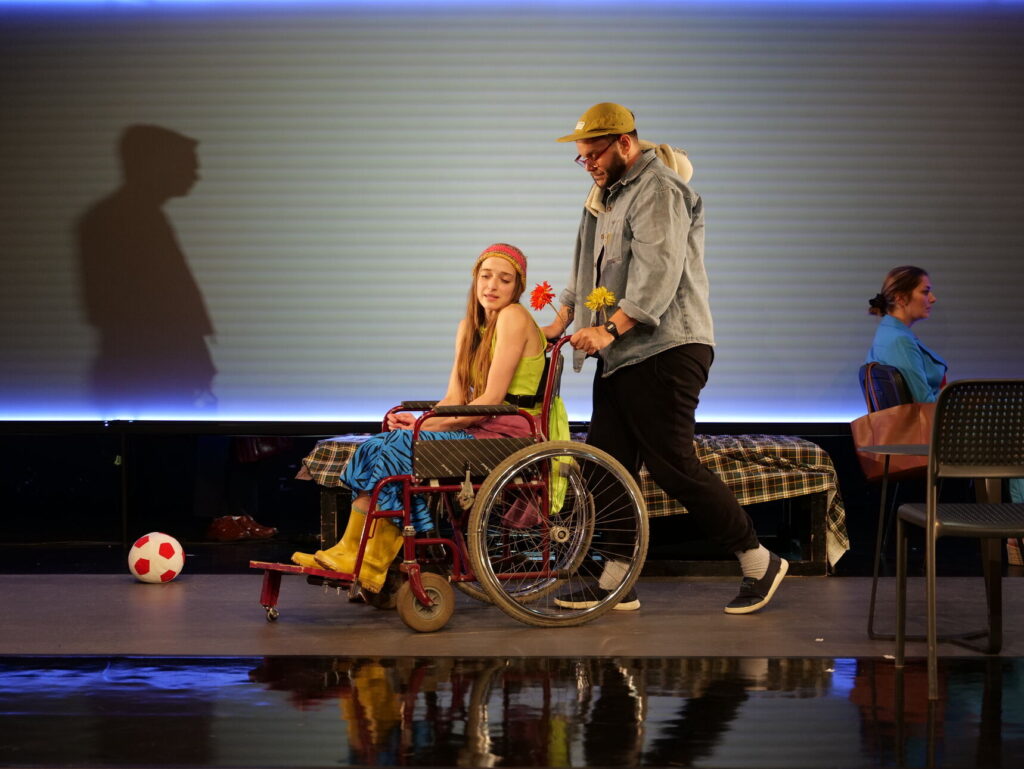
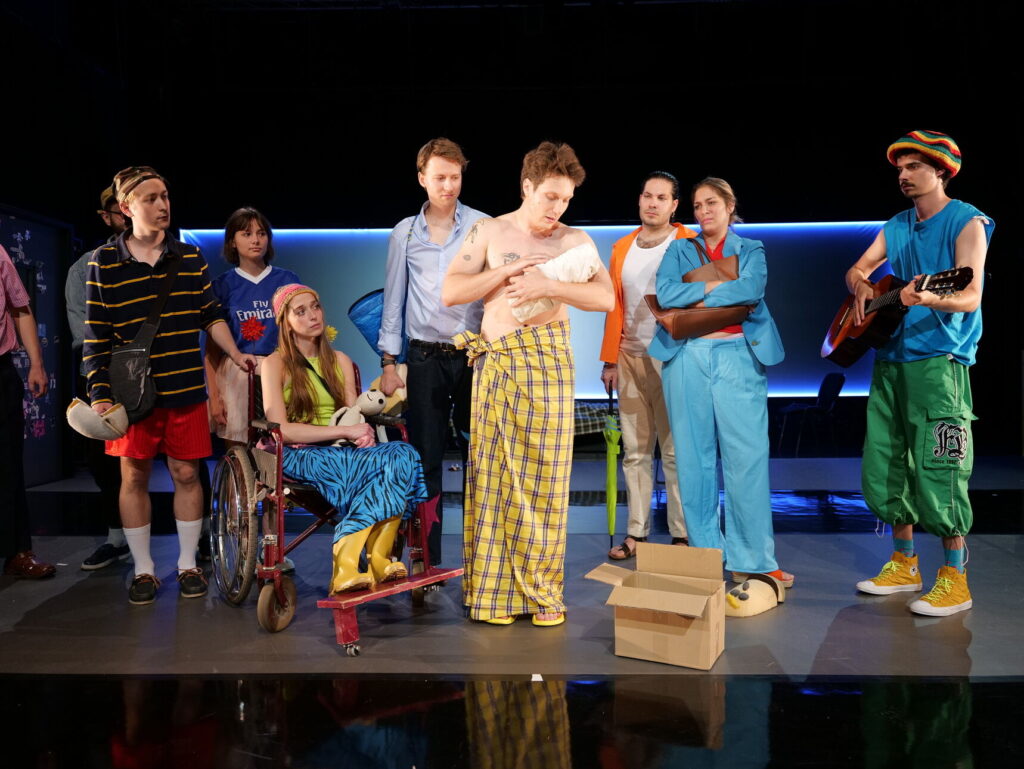
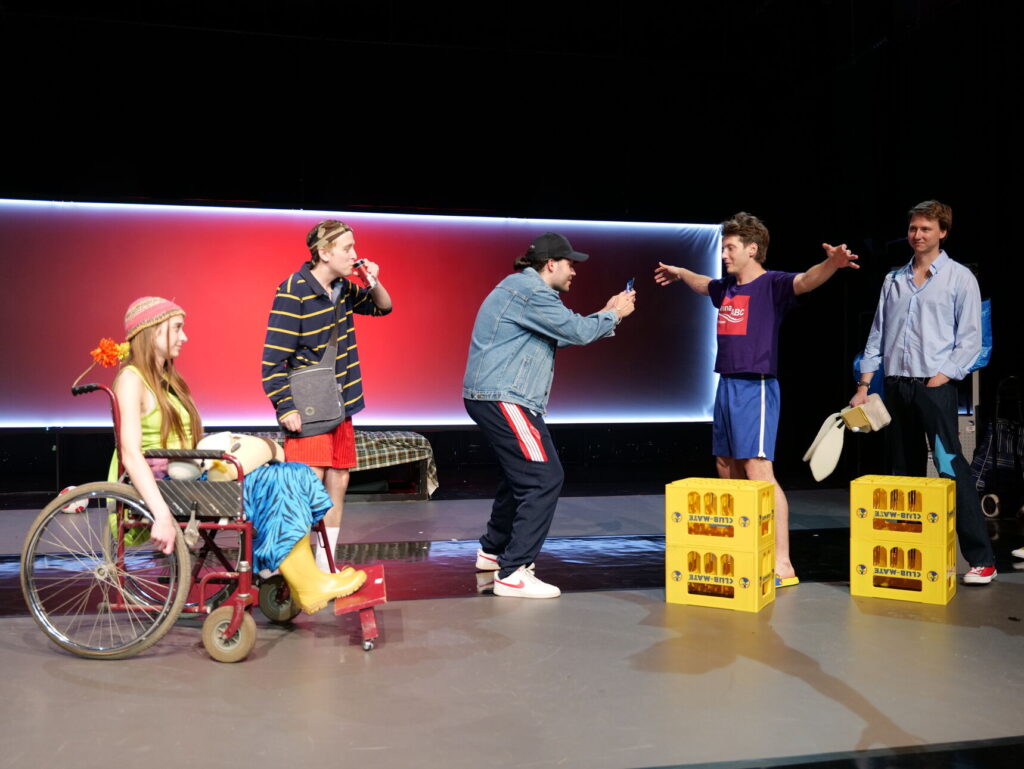
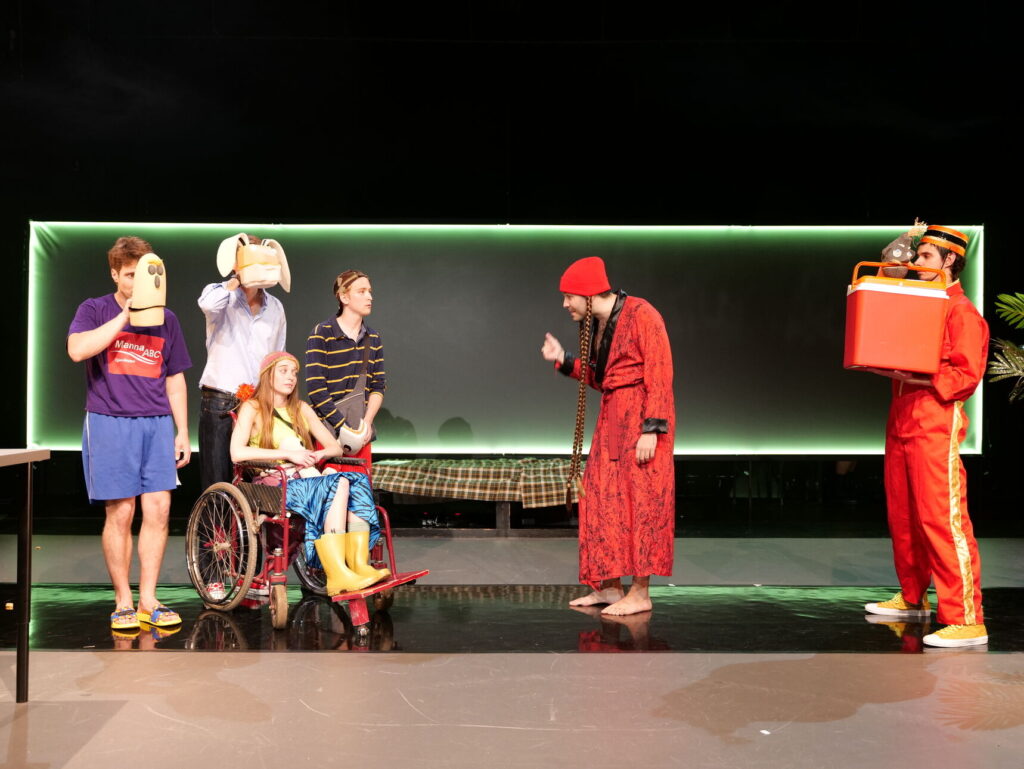
Photos by: Kata Tóth
Synopsis
Dream Relay
How much are we really in dialogue with our subconscious? Obviously, we don’t have time for such things; we have to conform to the logic of everyday life, the expectations that shape us, and, if we work in theater, to the perceived or real expectations of the audience, the current theatrical trends, our fears, and anxieties, which in our dreams project the horrific images of our humiliating failures. The primitive unconscious, the repository of our instincts, ruthlessly punishes individual arrogance and reminds us that the images it holds are shared! In art, when we explore the creative energy hidden in our subconscious, our own intellectual development can take shape. Our rehearsal process was an experiment to reach the collective subconscious of the fifth-year puppetry class and the creative team of the exam performance. Our dreams increasingly intertwined; we would occasionally appear in each other’s dreams, forming a shared dream network, while also realizing that letting go of the red helium balloon labeled REALITY is not as easy as it seems.
Cast & Creative Team
Petra Ács
Sára Bánky
Bendegúz Bartha
Ági Bartos
Bettina Csarkó
Toma Hrisztov
Attila L. Nagy
Laura Podlovics
Máté Szekeres
Set Designer: Ágnes Bobor, Mira Simonyi-Lengyel
Costume Designer: Mira Simonyi-Lengyel
Costume Assistant: Marcell Baranyai
Makeup: Eszter Sorosi
Assistant Directors: Aliz Terecskei, Klarissza Tóth, Boglárka Tajti
The creators’ dreams and improvisations were compiled and supplemented by: Andrea Pass
Director: Andrea Pass
Texts used: Andalusian Dog (screenplay excerpt), Tibor Haja: Atonement, Word-Ghetto
Head Teacher: Edina Ellinger.
Duration: approx. 75 minutes
Production Photos





Photos by: Lázár Todoroff
Promotional Video
Synopsis
Musical boulevard road movie for young adults
and for other-age audiences interested in their issues
Featuring trash muppets, the DANTE CASINO cast, and guests
Based on a thorough reworking of the play Budapest Polaroid, originally written for the Budapest150 drama competition
"The world is beautiful. Oh, how beautiful! Could a story begin like this? This is where we should get to, right? If I think about it more, I might realize that I’m in quite a predicament. Me, this marvelous, fragile creature of this unfathomable universe. I could also wonder how much longer I will live. And how will I spend the fantastic moments ahead of me? What should I make come true? Do I even have dreams? Do I want… what exactly?… Anything at all? Will I be able to accomplish it? Will I be able to… anything? Or is everything fine just the way it is? Who am I really? A heart trapped in a sponge, endlessly beating? Do I even know what I want? Or am I satisfied with simply being happy? Here, there, and everywhere?"
Cast & Creative Team
Máté Dezső Georgita
Máté Martinkovics
Laura Podlovics
Bence Szalay
Olivér Rákos
Dániel Papdi
Andor Isépy
Dalma Tenki
Kata Bartsch
Mátyás Papp
Lili Lujza Szirtes
Csaba Szendrői
Set Design: Anna Fekete
Costume: Zsófia Osgyányi
Lighting: Ádám Langó
Assistant: Lili Lujza Szirtes
Writer, Director: Andrea Pass
Special thanks for Lujzi’s monologue to Bíborka Kiskos, for the music to the ELEFÁNT and ANALOG BALATON bands, for puppets other than the Bunny to Gábor Palya, for one audio recording to Balázs Benő Fehér, and for the wheelchair to TÁP Theatre.
Production Photos














